
Getting Into College , Paying for School , Tips for Online Students , Tips for Students

What Is A Fellowship And Why You Should Consider It

What is a fellowship and what does it matter to get one? As a graduate student, you’ll likely find yourself pondering these questions. While a fellowship is similar in a sense to an internship, there is more to know as it is academically-focused! Here, we will share all you need to know about fellowship programs, including their purpose and their benefits/downsides.
What Is A Fellowship?
There are various types of fellowships, but they may either award funding for students to gain research experience or be used to subsidize the cost of education. As such, fellowships tend to be awarded based on merit.
Fellowships can also help to boost a graduate student’s resume upon applying for jobs. Consider it like work experience before entering the field.
Photo by Dan Dimmock on Unsplash
3 types of fellowships.
Depending on your current enrollment status, there are different kinds of fellowships you can be awarded.
1. Graduate
Graduate fellowships offer money to help subsidize the cost of a graduate degree. Fellowships can come in the form of cost-of-living stipends, health insurance or to cover tuition. In some cases, a fellowship may also help to pay for the expenses tied to a graduate student’s professional development (i.e. The cost of attending a conference or seminar).
Doctors who are practicing after finishing medical school and residency can apply for fellowships to further specialize in their field. These fellowships can cover the cost of training so that doctors can become experts in their niche field of medicine.
3. Postdoctoral
For those who have completed their doctorate and wish to perform research, postdoctoral fellowships supply the necessary funding. They may cover the full expense of the research or subsidize the costs.
The Length Of A Fellowship
The length of a fellowship isn’t a one-size-fits-all timeline. Each granting institution of a fellowship will determine its length. In most instances, fellowships last at least a year, but they can also be renewed if the eligibility requirements continue to be met.
For postdoctoral fellowships, research may not always take just a year, so these can last for several years.
Benefits Of A Fellowship
The benefits of a fellowship are obvious and can be extensive. A fellowship can reduce the cost of earning an education. If it doesn’t come in the form of compensation, then a fellowship may provide you with stipends for travel costs or living expenses.
Additional benefits of a fellowship may include:
- Student loan forgiveness
- Health insurance
- Free housing
No matter what the monetary contributions are, a fellowship will undoubtedly provide students with experiential learning and open the door to continued success.
Cons Of A Fellowship
Let’s start by saying that a fellowship isn’t going to have negative attributes if it’s what you want for yourself. The main downside is that they are highly competitive — so just because you apply, it doesn’t mean that you will be awarded a fellowship.
Furthermore, it will require a commitment to working hard. Fellowships are not well-suited for those who procrastinate or give up easily. But, if you’re willing to put in the work and do what it takes to benefit your future, then a fellowship is an opportunity worth trying for.
How To Find A Fellowship
It takes time, energy, and patience to find a fellowship that is tailored to your goals. For students who are interested in applying for a fellowship, the best place to start is with your school’s faculty advisors or professors. Sometimes, your institution’s financial aid office can point you in the right direction.
As with anything, you can perform internet research by searching keywords for the type of fellowship you want to attain.
Photo by Tetiana SHYSHKINA on Unsplash
How to apply for a fellowship.
As stated, fellowships are very competitive. That’s why you’ll have to fill out an application and prepare impressive work to show for it.
Organizations that provide fellowships will tend to favor students who have performed well academically, given back to their community, and have taken challenging classes. For those who are applying for postgraduate research fellowships, you may have to showcase all you aim to achieve with the funds.
Many applications require similar documentation as a school would, including:
- Letters of recommendation
- A resume or CV
- Transcripts
- Research proposal
Is A Fellowship Right For Me?
So, how do you know if a fellowship is right for you? When deciding to apply for a fellowship, consider the the following:
- Will this fellowship help me in my career?
- Does this fellowship grant me specific training for my profession?
- Will earning this fellowship help me to achieve my goals?
- Do I have the motivation and dedication to successfully fulfill the fellowship’s requirements?
If you’re simply looking for financial aid for education, then a fellowship isn’t the route to go. Instead, take a look at scholarships and FAFSA , for example.
On the other hand, you can consider attending an affordable institution for higher education like University of the People. We offer four degree programs that prepare you to excel in your chosen career. If finances are a concern, then you have nothing to worry about when you attend our online institution because our programs are tuition-free !
The Bottom Line
A fellowship can help students and graduates excel in their future. Fellowships offer funds for education to either complete degrees or perform research in a field of choice. While they remain to be highly competitive, the benefits greatly outweigh the risk of applying for a fellowship.
The worst thing that can happen is to be denied. In actuality, if you meet the eligibility requirements, then you have everything to gain and nothing to lose when you apply for fellowship programs!
Related Articles
Graduate School
- Resources to Prepare for Graduate School
- Adonara Mucek, Ph.D. Geology '17
- Adriana Mendoza, Ph.D. Mathematics '14
- Andrew Olsen
- Becca Maher ('21, Ph.D.)
- Bryan Lynn, Ph.D. Integrative Biology
- Celeste Frazier Barthel, Ph.D. Education '21
- Diane Brandt
- Francesca Germano, Toxicology, M.S.
- Garrett Rogers
- Jafra Thomas
- Jen Hayes, Horticulture, PhD
- Jordan Jimmie
- Jordan Spradlin, Public Health, MPH
- Kalina Fahey, Psychology, Ph.D.
- Katie Stelling, Earth, Ocean and Atmospheric Sciences, Ph.D.
- Kelsey Contreras
- Layla Ghazi
- Marie Tosa, Ph.D. Wildlife Sciences
- Sara Letton
- Tiara Walz, Ph.D. Public Health
- Glossary of Terms
- Master's Students
- Doctoral Students
- Certificate Students
- Graduate School Orientation 2023
- Graduate Teaching Orientation 2023
- Do I Qualify to Attend Graduate Summer Step?
- Orientation for Winter, Spring and Summer Terms
- Co-sponsorships
- Your Graduate Committee
- Student Resources
- Grad Research Photo Competition
- Tips for Scheduling Committee Meetings
- Program of Study
- Formatting a Thesis or Dissertation
- Pretext Pages Templates
- Commencement
- Grad Inspire
- Grievance Procedures
- Request a Workshop
- Earning Concurrent Degrees or Pursuing a Dual Major
- Career Preparation
- Grad Writing Group Challenge
- Graduate Writing Center Online
- Changing or Adding a Degree, Major or Certificate
- GRAD 420 - Graduate School Preparation
- GRAD 512 - Current Issues in Higher Education
- GRAD 513 - Professional Development in College and University Teaching
- GRAD 516 - Graduate Teaching Seminar
- GRAD 520 - Responsible Conduct of Research
- GRAD 521 - Research Data Management
- GRAD 542 - The Inclusive College Classroom
- GRAD 550 - Introduction to Online Course Development and Facilitation
- GRAD 560 - Theories of Teaching and Learning
- GRAD 561 - Course Design and Methods
- GRAD 599 - Creating Happiness
- GRAD 599 - Interdisciplinary Teams
- GRAD Courses
- OSU Grad Advantage
- WR 599 - Scientific and Technical Research Writing
- WR 599 - Writing Workshop for Thesis and Dissertation Writers
- Graduate Faculty Membership
- Graduate Council Representatives
- Policy updates
- Holistic Admissions
- Defining the Graduate Mentor
- The Importance of Mentors
- Apprenticeship and Mentoring
- Mentor and Mentee Pairing
- Maintaining and Evaluating Mentoring
- Suggestions for Mentoring Programs
- Handbooks, Manuals, and Guides
- Mentoring Bibliography
- Communication Items
- Detailed Considerations for a Joint Degree Program
- MOU Outline for Creating a Joint Program
- College and Program Recruitment Representatives
- Graduate Recruitment Tips
- Helpful Recruitment Links
- Shared Graduate Recruitment Schedule
- Leave of Absence and Family Medical Leave Eligibility
- Mentor Training for Faculty
- Student Funding
- Student Progress
- Student Progress Information for Programs
- Student Registration Information
- August 2023 Newsletter
- Sept 2023 Newsletter
- October 2023 Newsletter
- November 2023 Newsletter
- Dec 2023 Newsletter
- Feb 2024 Newsletter
- Jan 2024 Newsletter
- March 2024 Newsletter
- Strategic Plan
- Request Info
- Current Students
- Faculty Resources
You are here
An introduction to graduate fellowships.
Graduate fellowships and traineeships (herein referred to as graduate fellowships) are recognized nationally as a means to acknowledge and support outstanding graduate students in pursuit of their advanced degree objectives. Graduate fellowships provide financial support to graduate students without a commensurate service requirement.
Graduate fellowships vary widely by their purpose, selectivity, duration and support level. They are often awarded at a specific stage in the educational continuum. They may be supported by either internal or external sources of funds. The following discussion illustrates the variety of fellowships that are commonly available and emphasizes the differences among varying fellowship types.
Types of fellowships
Predoctoral fellowships.
Most federally-sponsored predoctoral fellowships are awarded under a national competition on the basis of a student's intellectual merit and the potential that the student and her/his proposed research may have for creating positive societal impacts. Predoctoral fellowships are typically portable, meaning the recipient may choose the educational institution and graduate program for which the fellowship will be utilized. Predoctoral fellowships typically provide multiple years of funding at nationally competitive rates to fully support the educational and living expenses of recipients in the early stages of their graduate programs. Most include a cost of education allowance in addition to the fellowship stipend. Select predoctoral fellowships may also provide a research allowance.
Dissertation fellowships
In contrast, dissertation fellowships typically provide only a stipend for living expenses and are intended for students who will complete the writing phase of the dissertation during a one-year award period. Dissertation fellowships rarely include educational allowances recognizing the recipient is in the advanced stage of doctoral training with most, if not all, course work completed.
Traineeships
Traineeships are offered under training grants secured by institutional faculty for the purpose of developing the next generation of disciplinary and/or multidisciplinary experts who will become leaders and innovators in their professional careers. Like predoctoral fellowships, traineeships provide a competitive stipend and cost of education allowance. In addition, some may provide research allowances, internship opportunities, and international research experiences. A primary distinction between graduate traineeships and predoctoral fellowships is that the principal investigator(s) select the students who will participate in the advanced training program.
Institutional graduate fellowships
Institutional graduate fellowships may be offered by academic programs or the Graduate School for the purpose of recruiting or retaining graduate students of quality and/or shaping an inclusive student body that embraces a broad range of perspectives. Institutional graduate fellowships are typically sponsored through donations made to the OSU Foundation or through other authorized funds designated by the Provost for strategic purposes. These internally-funded graduate fellowships typically provide stipend only and contribute full support for the recipient's living expenses. Allowances for education and/or research are commonly not included. However, to maximize the value of institutionally-sponsored graduate fellowships, stipends that meet or exceed the prevailing recommended minimum value for a .49 FTE appointment may qualify for auxiliary tuition support from the Graduate School upon request from the sponsoring graduate program.
How graduate fellowships are different
Graduate student funding encompasses many categories of financial support and terminology is often used incorrectly and/or interchangeably. To avoid confusion, it should be emphasized that graduate fellowships are to be distinguished from other forms of support (e.g., scholarships, assistantships, hourly-wage appointments) both by their non-employment attributes and their single-source origin and comprehensive nature of financial support. To this end, it is important to recognize that competitive federally-sponsored predoctoral fellowships offering multi-year support of up to $40,500 per year or more and/or OSU Foundation fellowships that meet prevailing recommended minimum stipends for .49 FTE appointments stand apart from financial packages that, for example, provide only a $5,000 or $10,000 supplement. Thus, eligibility criteria have been developed to provide transparency so that all members of the graduate community may make these distinctions.
It is the intent of the institution to ensure that an incentive remains for graduate students to seek competitive graduate fellowship support and for graduate fellows to be recognized and honored for the distinction that they bring to themselves and to the university as a result of their success.
Read the graduate fellowship policies
2022-2023 Graduate Fellow Handbook
2023-2024 Graduate Fellow Handbook
- Graduate Assistantships
- How Are Fellowships Different from Assistantships?
- Introduction to Graduate Fellowships
- FAQs about Graduate Fellowships
- External Fellowships
- National Science Foundation Award
- Strategies for Finding Funding
- Graduate Fellowship Policies
- Graduate Fellow Offer and Renewal Letters
- Alternatively-Funded Graduate Fellowship Program
- Graduate Tuition Waiver Policy
- Graduate School Awards
- Tuition Support Programs
- Scholar Incentive Program
Contact Info
Graduate School Heckart Lodge 2900 SW Jefferson Way Oregon State University Corvallis, OR 97331-1102
Phone: 541-737-4881 Fax: 541-737-3313
- Programs - Majors, minors and certificates
- Academic Progress
- Student Success
- Faculty Support
- Staff Directory
- Graduate Catalog
Google PhD fellowship program
Google PhD Fellowships directly support graduate students as they pursue their PhD, as well as connect them to a Google Research Mentor.
Nurturing and maintaining strong relations with the academic community is a top priority at Google. The Google PhD Fellowship Program was created to recognize outstanding graduate students doing exceptional and innovative research in areas relevant to computer science and related fields. Fellowships support promising PhD candidates of all backgrounds who seek to influence the future of technology. Google’s mission is to foster inclusive research communities and encourages people of diverse backgrounds to apply. We currently offer Fellowships in Africa, Australia, Canada, East Asia, Europe, India, Latin America, New Zealand, Southeast Asia and the United States.
Program status
Applications are now closed..
Applications for the 2024 program will open on March 28 and close on May 8.
How to apply
The details of each Fellowship vary by region. Please see our FAQ for eligibility requirements and application instructions.
PhD students must be nominated by their university. Applications should be submitted by an official representative of the university during the application window. Please see the FAQ for more information.
Australia and New Zealand
Canada and the united states.
PhD students in Japan, Korea and Taiwan must be nominated by their university. After the university's nomination is completed, either an official representative of the university or the nominated students can submit applications during the application window. Please see the FAQ for more information.
India and Southeast Asia
PhD students apply directly during the application window. Please see the FAQ for more information.
Latin America
The 2024 application cycle is postponed. Please check back in 2025 for details on future application cycles.
The best and the brightest
Google PhD Fellowship students are a select group recognized by Google researchers and their institutions as some of the most promising young academics in the world. The Fellowships are awarded to students who represent the future of research in the following fields:
- Algorithms and Theory
- Distributed Systems and Parallel Computing
- Health & Bioscience
- Human-Computer Interaction and Visualization
- Machine Intelligence
- Machine Perception
- Natural Language Processing
- Quantum Computing
- Security, Privacy and Abuse Prevention
- Software Engineering
- Software Systems
- Speech Processing
- Other areas listed in application forms during application window
Frequently asked questions
Learn more about our programs and outreach efforts on our FAQ page.

Microsoft Research PhD Fellowship
Region: Global
For eligible students at universities globally pursuing research aligned to Microsoft Research areas of focus.
Update : Microsoft Research has paused our call for proposals/nominations for the 2023 calendar year. We are exploring new avenues to invest in our academic partnerships and bring together students and researchers to collaborate, share knowledge, and pursue new research directions.
To learn more about the recently announced Microsoft Research AI & Society Fellows program , uniting eminent scholars and experts to collaborate on research at the intersection of AI and society, visit our program page .
The Microsoft Research PhD Fellowship is a global program that identifies and empowers the next generation of exceptional computing research talent. Microsoft recognizes the value of diversity in computing and aims to increase the pipeline of talent receiving advanced degrees in computing-related fields to build a stronger and inclusive computing-related research community. We currently offer PhD fellowships in Asia-Pacific, Canada and the United States, EMEA (Europe, Middle East, Africa), Latin America, Australia and New Zealand.
Over the last two decades, the Microsoft Research PhD Fellowship program has supported over 700 fellows around the world, many of whom have gone on to work at Microsoft. Others have gone on to perform pioneering research elsewhere within the technology industry or accept faculty appointments at leading universities.
See your region for details, instructions, and answers to common questions.
- Asia-Pacific
- Australia & New Zealand
- Canada & United States
- Middle East
- Latin America
We are always looking for the best and brightest talent and celebrate individuality. We invite and encourage candidates to come as they are and do what they love.
The Microsoft Research 2022 Global PhD Fellowship recipients were announced in October 2022. Meet all the 2022 PhD Fellowship recipients on our “ 2022 Fellows ” page or hear about what this opportunity means to a few PhD fellows from around the globe below.
- Follow on Twitter
- Like on Facebook
- Follow on LinkedIn
- Subscribe on Youtube
- Follow on Instagram
- Subscribe to our RSS feed
Share this page:
- Share on Twitter
- Share on Facebook
- Share on LinkedIn
- Share on Reddit
- Fellowships FAQ
- Fellowships
- Campus Resources
- Fellowship Advising
- Fellowships Database
- Neubauer Fellows
A fellowship is an acknowledgement of your potential as an emerging scholar.
The term “fellowship” encompasses many opportunities, including competitive grants, study abroad, and research activities. Most commonly, a fellowship is awarded to fund a proposed research project or similar academic activity with specific, well-defined goals. The National Science Foundation Graduate Research Fellowship and Fulbright US Student Program are the best known fellowships in the United States. Doctoral students in humanities and humanistic social sciences may be especially interested in the newly created Mellon/ACLS Dissertation Innovation Fellowship .
UChicagoGRAD helps graduate students and postdocs craft stronger applications across the wide range of fellowships, which spans overseas and domestic research, language study, dissertation writing, professional development, and teaching opportunities.
FREQUENTLY ASKED QUESTIONS
What is a fellowship? A fellowship provides monetary support for various types of academic endeavors, including study, research, and professional-development, and can range in length from a month to multiple years. Winning a fellowship is an acknowledgement of your potential as an emerging scholar. There are fellowships for scholars at the undergraduate, graduate, and post-graduate level. Fellowships are typically funded by non-profit organizations, commercial companies, government agencies, and universities. Since any organization can create a funded opportunity and label it a fellowship, there is immense variety in types of fellowships and how they are structured.
What do fellowships fund? Most fellowships fund a proposed research project or similar academic activity with well-defined goals. Fellowships can fund both domestic research and overseas research, such as conducting fieldwork, accessing archives, running experiments, or acquiring data. A fellowships can also fund language study (e.g., Foreign Language Area Studies Fellowship Program, Critical Language Scholarship, Boren Fellowship), teaching experiences (e.g., Fulbright English Teaching Assistantship), or professional training (e.g., post-MSW fellowships, government leadership fellowships). Fellowships can also fund creative and performing arts endeavors (e.g., artist residencies). Certain fellowships also fund degree coursework (e.g., Schwarzman Scholars, AAUW, or NSF GRFP).
What is the difference between an internal and external fellowship? An internal fellowship is funded by a student’s home university. Many departments, centers, and affiliated organizations at UChicago offer fellowships for graduate students and postdocs. An external fellowship is funded by an entity outside the University. For many major external fellowships, the University of Chicago will play an administrative role in the application process or disbursement of the award.
What if a fellowship requires active student status, but I will have graduated by the time the fellowship starts Some fellowships require that a recipient be an active student for the duration of the fellowship award. Contact your Deans of Students about deferring your graduate and extending your student status into next year.
Can I apply for more than one fellowship at the same time? Generally, you can apply for as many fellowships as you would like. Some competitions such as the Fulbright US Student Program may restrict you from applying for multiple fellowships within the same organization during the same competition cycle. We encourage you to explore widely. If multiple fellowships fit your profile and interests, applying to more than one can be advantageous. Consider that fellowship applications are time and energy intensive. It is important to balance applying to opportunities that fit your interests with managing the time required to produce a strong application.
While you can apply to multiple fellowships, it might not be possible to accept more than one fellowship at a time. Whether you can hold multiple fellowships will depend on the rules of individual funders. For example, it may be relevant whether award periods overlap or whether the awards share the same funder, as is often the case with federally-funded awards.
What is involved in applying for a fellowship? Every fellowship has its own application requirements and process. Some smaller fellowships may have applications with fewer components and a shorter process. Larger yearlong fellowships will have a more extensive application with an application deadline eight to twelve months prior to the start of the fellowship. The components of a fellowship application are similar to those you are already familiar with from your application to a master’s or doctoral program. Fellowships generally require one or more essays (e.g., statement of grant purpose, personal statement), transcripts, and letters of recommendation. If you would like support in applying for a fellowship, the fellowships team at UChicagoGRAD offers 1:1 advising appointments to support you at any stage of the application process. You can also receive written feedback on any of your essays from our writing specialist.
What is entailed by a campus nomination or competition with limited submission? Certain fellowships require applicants to receive a nomination from their home university. The nature of the campus nomination process will vary depending on the fellowship and may involve the fellowships office at UChicagoGRAD or your home department. These fellowships typically include an internal deadline which allows time for the nomination process prior to the official external deadline for the fellowship.
Some fellowships do not limit to how many students can apply from each university (e.g., Fulbright U.S. Student Program, Boren Fellowship), so the campus nomination process is not a selection process. Other fellowships limit the number of submissions allowed, which requires the University to select nominees from among our interested applicants.
Who should I ask for letters of recommendation? Fellowship selection committees look for strong letters of recommendation from writers who are familiar with your academic abilities and personal qualities. In most cases, doctoral students ask members of their dissertation committees to write letters of recommendation for research fellowships. Master’s students and incoming doctoral students often wonder whether to ask an undergraduate professor to write a letter of recommendation.
Since a recommender should speak to your relevant qualifications and experience as they relate to your proposed project, it is important that you discuss the details of the fellowship and your project with your recommender. It is common practice to give a recommender four to six weeks to write and submit your recommendation. If you know further in advance that you will be applying to a fellowship, we recommend you reach out to them earlier to ask if they feel they would be able to write a strong letter of recommendation for that specific fellowship. If so, you can communicate with them about when you will follow-up with specific instructions and any application materials that would help them to write their letter. Recommendations typically come from professors, advisors, supervisors, mentors, or employers who know you well and have appropriate experience in the relevant field of study. Recommendations are not character references, so you should not pick individuals who only know you in a personal capacity, such as friends or family members.
How do I find a language evaluator? If you have previously studied or are currently studying the target language in a university course, you may reach out to the instructor to ask if they would be willing to complete a foreign language evaluation. If you have not studied the language through coursework, the fellowships team at UChicagoGRAD can suggest an available instructor to conduct an evaluation with you. If the University of Chicago does not have any instructors in the target language, you may need to seek out a professor or instructor at another university. As with letters of recommendations, you should not pick a family member or friend.
How will the monetary award be disbursed? Fellowships differ as to how they disburse the funding to the recipients. For some fellowships, especially smaller ones, you may receive the money directly from the funding organization. For other fellowships, especially larger ones, the money may be disbursed to you via the University of Chicago. That is, the University will receive the funding from the organization and then it will be disbursed to you. The amount of money that will be disbursed to you will depend on your division’s external funding policy. Similarly, for some divisions, the benefit of fellowship funding may not come in the form of a direct monetary award, but rather in relief from teaching-assistantship duties.
Who is my grant contract administrator? Your Dean of Students can help you identify your division’s or school’s grant administrator. Contact [email protected] If you are having trouble finding the right contact.
Fellowships
Harvard Griffin GSAS provides resources for graduate students seeking short- or long-term funding support for research, language study, graduate school generally, and dissertation writing.
- Dissertation
- External Fellowships
- Internal Fellowships
- Maximizing Your Degree
- Before You Arrive
- First Weeks at Harvard
- Harvard Speak
- Pre-Arrival Resources for New International Students
- Alumni Council
- Student Engagement
- Applying to Degree Programs
- Applying to the Visiting Students Program
- Admissions Policies
- Cost of Attendance
- Express Interest
- Commencement
- Diversity & Inclusion Fellows
- Student Affinity Groups
- Recruitment and Outreach
- Find Your Financial Aid Officer
- Funding and Aid
- Financial Wellness
- Consumer Information
- Life Sciences
- Policies (Student Handbook)
- Student Center
- Title IX and Gender Equity
As a Harvard Griffin GSAS student, you may be required or encouraged to find outside funding for projects and research. Harvard Griffin GSAS provides resources for graduate students seeking short- or long-term funding support for research, language study, graduate school generally, and dissertation writing.
Plan Ahead
Deadlines for fellowship competitions are usually in the academic year before the fellowship period. For example, if you’re looking for funding for the fall or spring, you will apply for fellowships the previous fall.
Finding Fellowships
The Fellowships & Writing Center provides guidance to students interested in applying for certain internal and external fellowship competitions. Harvard Griffin GSAS also maintains the CARAT database , which contains information about additional fellowship opportunities and should be your first stop. CARAT allows you to search for fellowship opportunities by keyword, citizenship requirement, length of opportunity, stage in graduate school, and more. Through CARAT, you can find links to application materials for many internal fellowships, including those listed on the Harvard Griffin GSAS website, and instructions on how to apply. You can also search external databases for opportunities:
- The University of Illinois Fellowship Finder
- The UCLA Search for Graduate and Postdoc Funding
- The University of Chicago Fellowships Database
- Online Guide to Scholarships & Resources for LGBTQIA+ College Students
Getting Help
In an individual consultation on your fellowship proposal, you will receive feedback and advice on how to articulate the significance of your fellowship project. If you would like a critique of your fellowship essay, please complete the FWC intake form and one of our writing specialists will read and return your essay with an offer to schedule an appointment with you to discuss the feedback.
If you have a question about fellowships, please sign up for an advising appointment with Dr. Jeannette Miller.
How do I apply for a fellowship?
Every fellowship has specific criteria and application instructions, but as a general rule, most competitions ask for:
- A fellowship proposal, explaining your research topic and what you plan to do if you are granted the fellowship
- Recommendation letters
- A budget of expenses you expect to incur, especially for fellowships requiring travel
- Transcripts
- A current CV, which includes a list of awards and fellowships you have won during your time as a graduate student, presentations, publications, and other relevant information.
Plan your application well in advance by seeking out recommenders early, making sure you obtain official transcripts well ahead of deadlines, and drafting your proposal early to get as much feedback on it as possible.
Fellowships & Writing Center
Share this page, explore events, related news.

Notes From a Writer's Desk: Finding Focus
Spring is in the air. The birds are chirping, the sun is out longer, and we’re getting more and more days of 50+ degree weather. For academics in the Northeast, this can be rejuvenating, but it can also be distracting.
Notes From a Writer's Desk: Demystifying the Dissertation Finish Line
As a doctoral candidate in your final year, you’re likely juggling various responsibilities—finishing the dissertation, navigating the job market, completing lab work, possibly teaching, and trying to maintain some semblance of a personal life.

Notes From a Writer's Desk: Collecting Your Own Mid-Term Feedback
Just as teaching evaluations can help you to reflect on the choices you make in the classroom, a writing evaluation—conducted by you, for you—can help you to reflect on how you are organizing and spending your time.

Notes From a Writer's Desk: Approaching Your Work with Fresh Eyes
“After you submit your dissertation, don’t look at it for a year.”

Announcing the 2022 PhD Fellows
Sep 01, 2022

In 2009, Google created the PhD Fellowship Program to recognize and support graduate students who are doing exceptional research in Computer Science and related fields, and who are poised to shape the future of technology. Since our first awardee cohort 13 years ago, these PhD Fellowships have helped support 654 graduate students from around the world across Africa, Australia & New Zealand, East Asia, Europe, India, North America and Southeast Asia.
Over the past 14 award cycles, our PhD Fellows have made some incredible contributions to their fields, and today we're checking in with three of our past alumni.
- Flora Tasse — Head of CV/AR Research at Streem specializing in AI applied to Computer Graphics and Vision problems faced in AR/VR
- Minsuk Kahng — Assistant Professor of Computer Science at Oregon State University whose research focuses on designing and developing novel visual analytics tools for people to interpret and interact with machine learning systems that use massive datasets
- Nicolas Papernot — Assistant Professor of Computer Engineering and Computer Science at the University of Toronto whose research interests span the security and privacy of machine learning
What was your motivation to apply to the program?
Flora: I started my PhD with the mission to seize every opportunity to surround myself with the best in the field and broaden my horizons. I was on the lookout for Fellowships that could provide that, and help me make an impact in my area of research. When I heard about the Google PhD Fellowship, I was impressed with all the support that went well beyond the financial. I was initially hesitant to apply because it is such a prestigious program. Thankfully, I did submit my application and it is one the best things I have ever done for my career.
Minsuk: Receiving a Google PhD Fellowship is a great honor for computer science PhD students. I deeply appreciated that Google recognized my research. I was particularly interested in applying for Google’s Fellowship program because Google researchers have been actively conducting research on human-centered approaches to Artificial Intelligence (AI), which is something I’m passionate about. The program provided me with an exciting opportunity to interact with them.
Nicolas: At the time, there were very few people working on my research topic (adversarial examples) so I wanted to apply to the Google Fellowship to find mentors and colleagues to discuss my ideas with. The Fellowship was a great accelerator for my research because it allowed me to meet with a number of people who ended up shaping my understanding of machine learning. This increased the pace of my research and led me to discover new areas of research that I am passionate about.
What impact did the Google PhD Fellowship have on your career trajectory and on technology?
Flora: The Google PhD Fellowship was a turning point in my career. It not only validated the research work I was doing, but also gave me visibility and support that opened so many doors. Through this experience, I formed valuable collaborations and expanded my professional network which proved fruitful in building my career. Thanks to my internship at Google Zurich, I gained valuable insights into innovation and the productization of research. I currently apply my research skills at Streem, where we are making the phone's camera intelligent. Acquired by Streem, my start-up Selerio was building AI agents that could understand images/videos and augment them with relevant interactive objects. This technology made a tangible difference in remote collaboration between experts and consumers to solve product issues which was particularly impactful at the height of the Covid-19 pandemic.
Minsuk: The Fellowship has allowed me to have a wonderful career. Thanks to invaluable advice from my mentors at Google, I completed my PhD with a Dissertation Award from Georgia Tech. I have recently decided to join Google’s People + AI Research (PAIR) team after working as faculty for three years. I have been developing data visualization tools for people to interpret AI systems. Along with my colleagues at Google I’ve created and open-sourced GAN Lab , an interactive tool for people to learn the inner-workings of deep learning models. It significantly broadens people's education access to AI, as learners can use it just with their browsers without the need for specialized backend. I look forward to pursuing research that can help people everywhere.
Nicolas: The Google PhD Fellowship gave me a lot of freedom to pursue my own research ideas, spend time developing the CleverHans library , and collaborate with researchers at different universities and in other research communities. The opportunities I've had to work on differential privacy and machine learning with leading researchers at Google Brain were transformative to my career, and fundamental to bootstrapping my academic career at the University of Toronto and Vector Institute. During the program, I was able to implement privacy-preserving algorithms that are now used by product teams with lots of users. This was a great opportunity to have an immediate impact on technology. More generally, my research is by design seeking to understand the limitations of machine learning so that society can better trust it.
What advice do you have for current and future Google PhD Fellows?
Flora: Take advantage of the opportunities it provides, apply to Google internships, go to more conferences, collaborate and meet PhD Fellows in other fields. By becoming a Google PhD Fellow, you are joining a community of incredibly talented researchers and gaining influential mentors. As for the PhD, you will still go through the ups and downs of doctoral research. But it will be much easier as a Fellow. Stay the course. If you are an undergraduate considering a PhD pathway, invest energy and time in figuring out if there is a problem or a field that you care enough about to dedicate many years of your life to it.
Minsuk: My advice is to look for opportunities to cross the boundaries between disciplines. My work was made possible by collaborating with people across multiple research areas, such as information visualization, machine learning, human-computer interaction and databases. While research from different fields might seem unrelated at first, combinations of ideas can create unique research opportunities. Before starting my PhD, I conducted research on making recommendation algorithms more accurate, but found myself being much more motivated by different flavors of research. This experience led me to find my research direction and vigorously pursue it in my PhD.
Nicolas: I recommend that you do not optimize for short term rewards (like publishing papers) but instead focus on solving the problems that you find the most interesting. Research is often a random process and it is hard to predict what work will have an impact, so optimizing for short term rewards can quickly remove the “fun” out of doing research. While an undergraduate student, you have many opportunities to learn about topics that are diverse and possibly far away from the topic you will eventually choose to work on if you start a PhD. This breadth of knowledge will not only make you a more interesting person but help you in your research, because the most interesting research questions are often the ones that require an interdisciplinary approach to find an answer.
Announcing the 2022 Google PhD Fellows
Since 2009, the Google PhD Fellows have represented some of the best and brightest computer science researchers from around the globe, and we’re honored to support them as they make their mark on the world. Congratulations to all of this year’s awardees! See the complete list of Google PhD Fellowship recipients for 2022 .
Related stories

Tackling cybersecurity vulnerabilities through Secure by Design
Google, gesda and xprize launch new competition in quantum applications.
Today, Google Quantum AI and Google.org are joining XPRIZE and the Geneva Science and Diplomacy Anticipator (GESDA) to launch XPRIZE Quantum Applications.

Meet the young Canadian innovators of Google’s Code Next program

Our first Trust & Safety Research Awards grantees

Introducing Gemini: our largest and most capable AI model

Help create new opportunities in computer science
Let’s stay in touch. Get the latest news from Google in your inbox.

- Undergraduate Students
- Doctoral Students
- Master’s Students
- Engineering Master’s Students
- Faculty & Staff
- Parents & Families
- Asian / Pacific Islander
- Black/African American
- First Generation/Low Income
- Hispanic/Latinx
- International
- Native American/Indigenous
- Neurodiverse
- Student Athletes
- Students with Disabilities
- Undocumented
- What is a Career Community?
- Business, Finance & Consulting
- Data, Technology & Engineering
- Discovery & Exploration
- Education, Government, Nonprofit & Policy
- Energy, Environment & Sustainability
- Entertainment, Media & Arts
- Healthcare & Biomedical Sciences
- Innovation, Entrepreneurship & Design
- Know Yourself
- Explore Options
- Focus & Prepare
- Take Action
- Evaluate & Refine
- Featured Opportunities
- Career Readiness Resources
- Personalize Your Hub
- For Employers
- Share This: Share Google PhD Fellowship Program on Facebook Share Google PhD Fellowship Program on LinkedIn Share Google PhD Fellowship Program on X

Google PhD Fellowships directly support graduate students as they pursue their PhD, as well as connect them to a Google Research Mentor.
Nurturing and maintaining strong relations with the academic community is a top priority at Google. The Google PhD Fellowship Program was created to recognize outstanding graduate students doing exceptional and innovative research in areas relevant to computer science and related fields. Fellowships support promising PhD candidates of all backgrounds who seek to influence the future of technology. Google’s mission is to foster inclusive research communities and encourages people of diverse backgrounds to apply. We currently offer Fellowships in Africa, Australia, Canada, East Asia, Europe, India, Latin America, New Zealand, Southeast Asia and the United States.
In the United States, Canada, and Europe, PhD students must be nominated by their university . Any accredited research institution that awards research degrees to PhD students may submit nominations by an official representative of the university. Please see our FAQ for more information.
Universities may nominate up to four eligible students. We encourage nominating students with diverse backgrounds especially those from historically marginalized groups in the field of computing. If more than two students are nominated then we strongly encourage additional nominees who self-identify as a woman, Black / African descent, Hispanic / Latino / Latinx, Indigenous, and/or a person with a disability.
Materials must be submitted by chairs of the department from eligible universities, or their designated contact.
- Duke Internal: April 8, 2024
- Nomination Deadline: May 8, 2024
Areas of Interest
Google PhD Fellowship students are a select group recognized by Google researchers and their institutions as some of the most promising young academics in the world. The Fellowships are awarded to students who represent the future of research in the following fields:
- Algorithms and Theory
- Distributed Systems and Parallel Computing
- Health & Bioscience
- Human-Computer Interaction and Visualization
- Machine Intelligence
- Machine Perception
- Natural Language Processing
- Quantum Computing
- Security, Privacy and Abuse Prevention
- Software Engineering
- Software Systems
- Speech Processing
- Other areas listed in application forms during application window
Eligibility Requirements
Universities should only nominate students that meet the following requirements:
- Students must remain enrolled full-time in the PhD program for the duration of the Fellowship or forfeit the award.
- Google employees, and their spouses, children, and members of their household are not eligible.
- Students that are already supported by a comparable industry award are not eligible. Government or non-profit organization funding is exempt.
- Past awardees from the PhD Fellowship program are not eligible to apply again.
- Canada and the United States : students who have completed graduate coursework in their PhD by the academic award year when the Fellowship begins.
Students cannot apply directly to the program; they must be nominated by an eligible university during the application period.
Internal Nomination
Owing to the sponsor’s restriction on the number of applications that may be submitted from Duke, anyone wishing to pursue nomination should submit the following materials as one PDF.
- Cover sheet signed by the Department Chair confirming the student passes eligibility requirements. (See FAQ “What are the eligibility requirements for students?”)
- Student essay response (350-word limit) to: Describe your research, the desired impact your research will make on the field and society, and why this is important to you. Include any personal, educational and/or professional experiences that have motivated your research interests.
Please submit internal materials through My Research Proposal. (Code ILN) https://www.grantinterface.com/sl/YWplou
Instructions for creating an account (if needed) and submitting your materials: https://ctsi.duke.edu/about-myresearchproposal
Amount Description
United States and Canada:
- Up to 2 year Fellowship (effective from 2024 for new recipients)
- Full tuition and fees (enrollment fees, health insurance, books) plus a stipend to be used for living expenses, travel and personal equipment
- Google Research Mentor
Internal Deadline
April 8, 2024
External Deadline
May 8, 2024

- Dean of the Graduate School
- PhD Program Characteristics
- Graduate Events
- Graduate Degrees awarded at USC
Fellowships
- Guidelines and Forms
- Student Resources
- Required Documents
- Submission Deadlines
- Guidelines to Submission
- Manuscript Formatting Guidelines
- Fellowships for PhD Students
- Scholarships for Masters Students
- Academic Support, Professional Development and Diversity Inclusion Programs
The USC Graduate School funds thousands of domestic and international students annually. PhD students at USC are supported by fellowships, teaching assistantships, research assistantships, or a combination of these funding sources. The recipients of Graduate School fellowships are selected from an application pool containing some of the most highly recruited students in the world.
PhD Students
All applicants who are admitted into a qualifying USC PhD program are automatically considered for incoming fellowships . Students who have successfully completed the first year of their PhD program may be eligible for additional competitively awarded funding.
Master’s and Professional Doctorate Students
The Graduate School and the Office of Academic Honors and Fellowships oversee a number of opportunities for master’s and professional doctorate students. The Office of Academic Honors and Fellowships oversees a number of opportunities for master’s students
Please refer to tax information for graduate students supported by fellowships, teaching and research assistantships and graduate student hourly workers.
Students are encouraged to explore additional opportunities through the USC Fellowships and Awards database
Phd achievement awards.
As part of an ongoing effort to support and recognize the academic professional development of current PhD students, the Graduate School provides a PhD Achievement Award for students with exceptional academic profiles. Up to six awards are made annually to students from across the university. Each recipient’s primary faculty advisor also receives a Graduate School PhD mentoring award. Current students from every PhD program at USC are eligible. Each USC PhD program may nominate one candidate.
View previous recipients
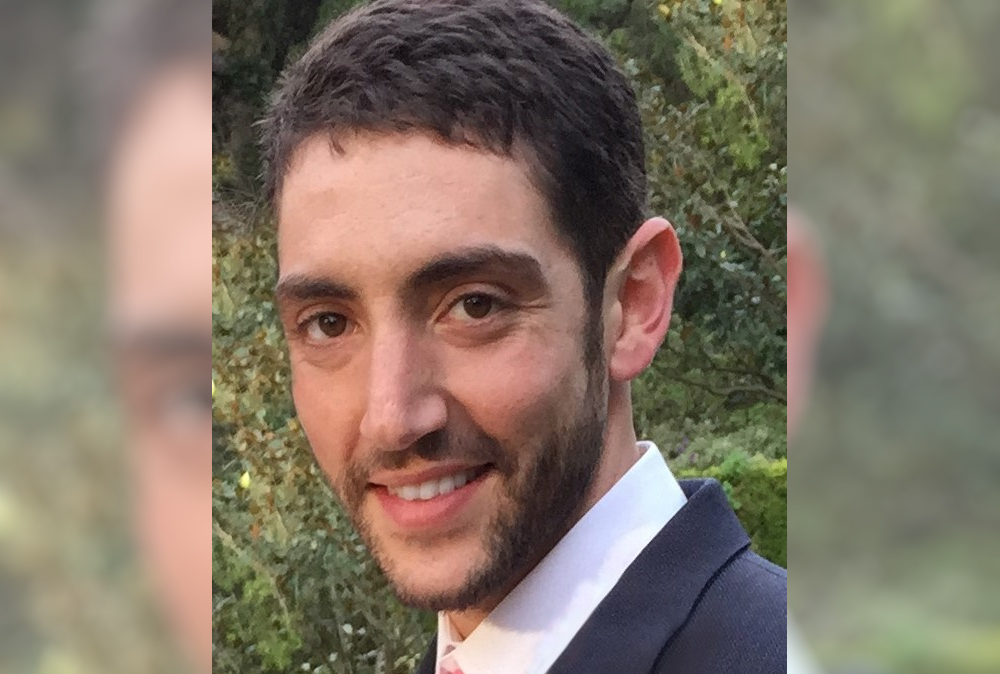
Ian Thacker
Rossier, Urban Education Policy, Faculty Advisor: Gale Sinatra
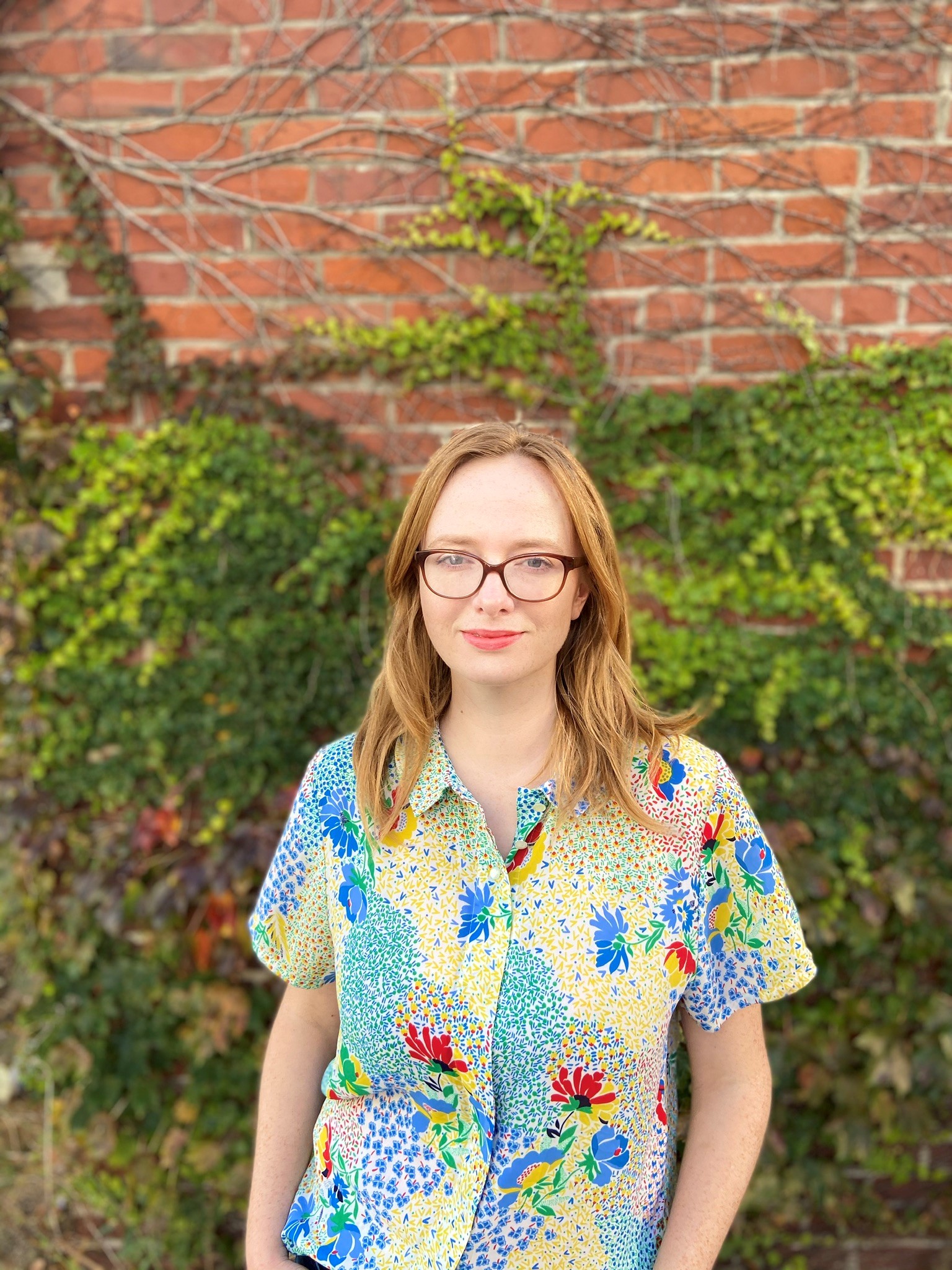
Elenore Neufeld
Dornsife, Philosophy, Faculty Advisor: Robin Jeshion
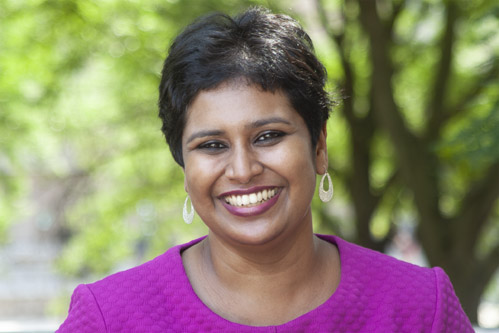
Darshana Mini
Cinema, Cinema and Media Studies, Faculty Advisor: Priya Jaikumar
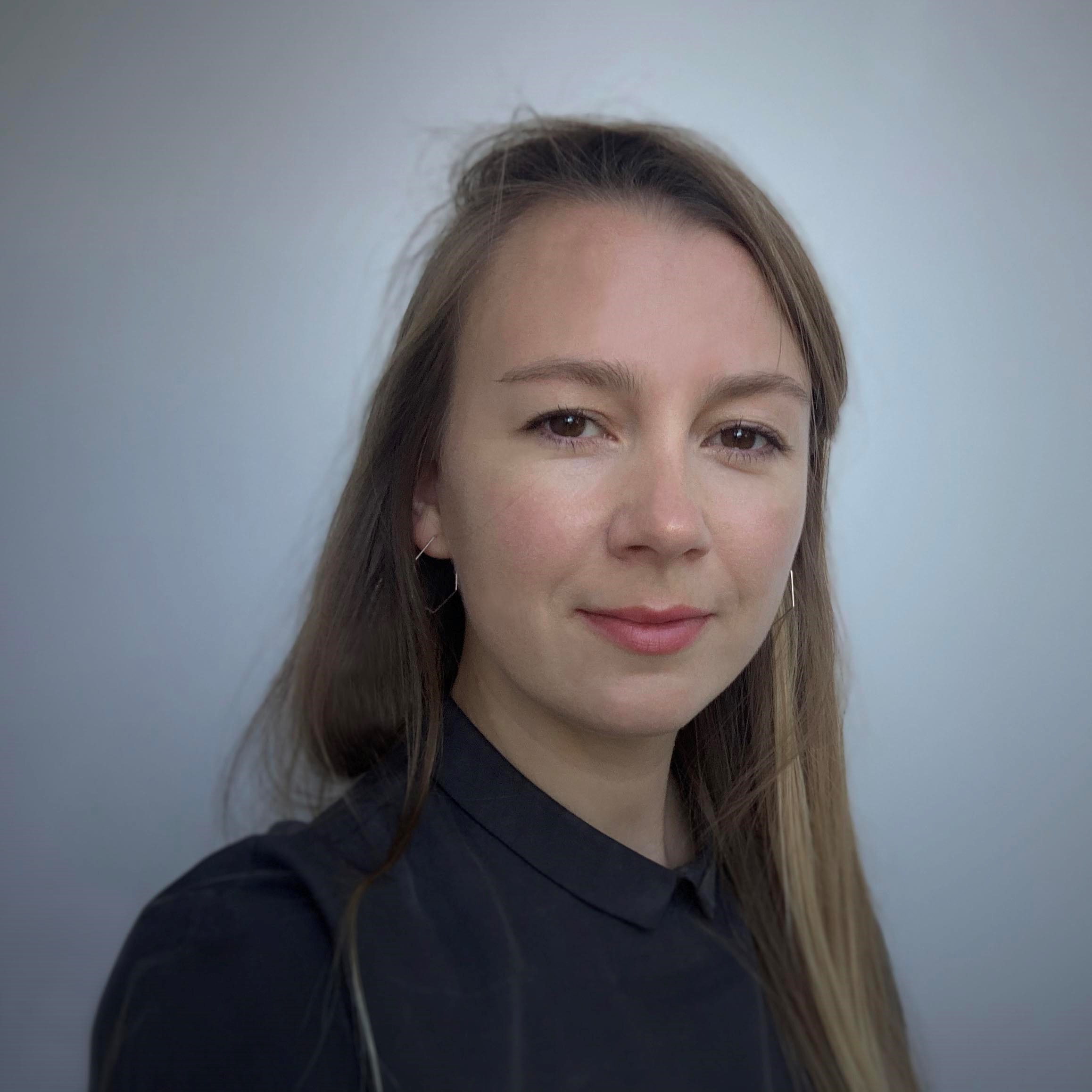
Catherine Griffiths
Cinema, Media Arts + Practice, Faculty Advisor: Andreas Kratky
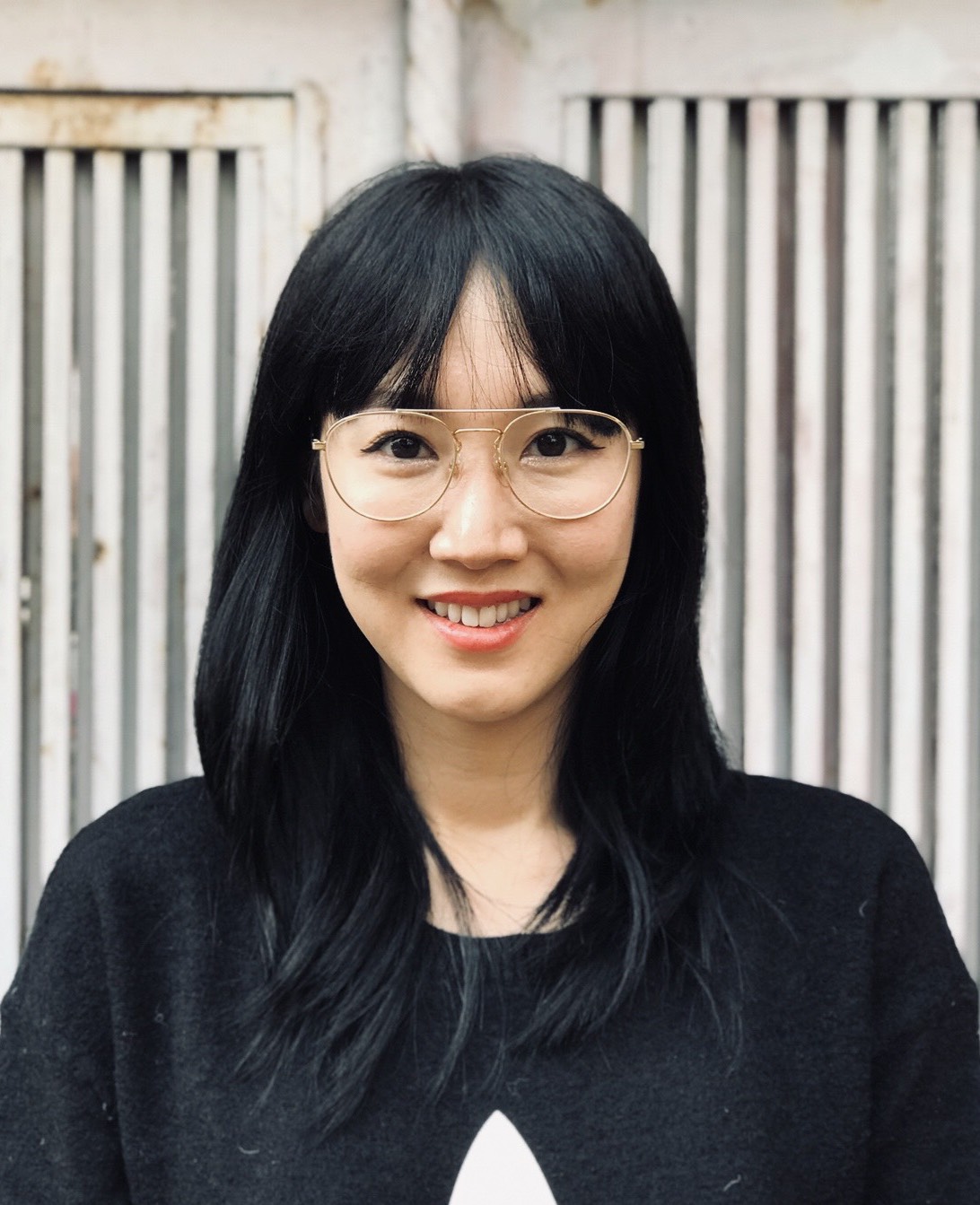
Carolyn Choi
Dornsife, Sociology, Faculty Advisor: Rhacel Parrenas
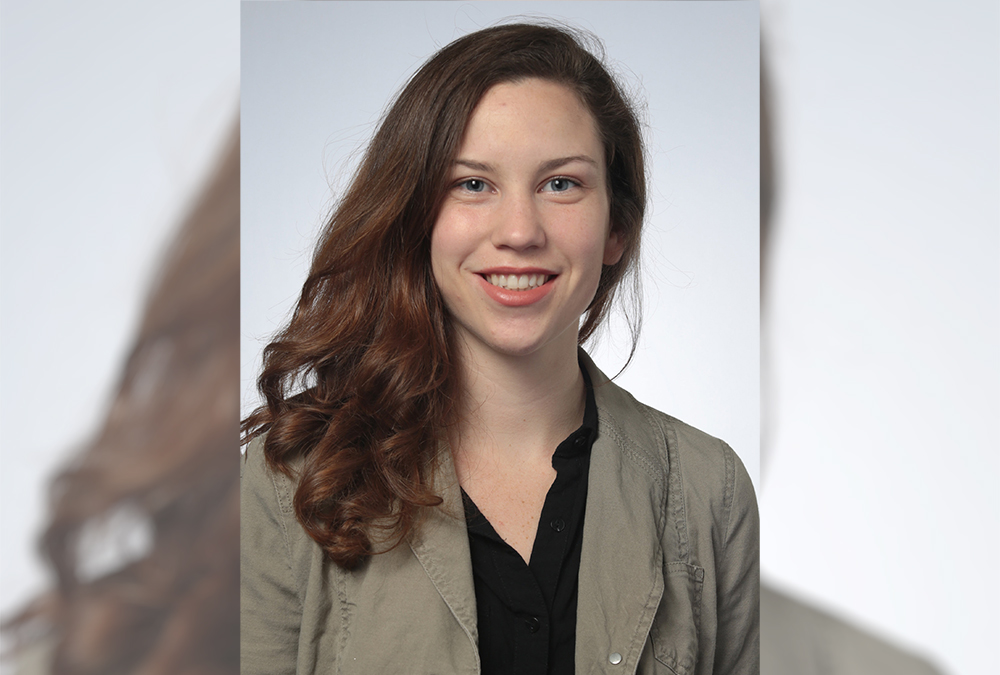
Amanda Baxter
Dornsife, Chemistry, Faculty Advisor: Surya Prakash

Graduate Research Fellowship Program
What is GRFP?
Fellowship benefits.
- Five year fellowship period with three years of financial support
- Annual stipend of $37,000
- Cost-of-education allowance of $16,000 to the institution
- No post-graduate study service requirement
- Access to supplemental funding to sustain research while on medical deferral (e.g. family leave)
Learn More »
Am I Eligible ?
To be eligible for the NSF GRFP, you must:
- be a US citizen, US national, or permanent resident
- intend to pursue a research-based Master’s or Ph.D. program in a GRFP-supported field
- be enrolled in an eligible program at an accredited United States graduate institution, with a US campus, by fall following selection
- be at an early stage in your graduate career
- have completed no more than one academic year of full-time graduate study (or the equivalent)
- Graduate students are limited to only one application to the GRFP, submitted either in the first year or in the second year of graduate school
Click here for more information
What's My Level?
Application level selection.
The GRFP Application requires you to select the academic level that best describes the stage of your academic career. Use the GRFP Academic Level Questionnaire to help you select the appropriate academic level in your application. Levels are determined as follows:
Level 1. You have not previously enrolled in a graduate degree-granting program, but plan to start graduate study next fall. Includes undergraduates in the final year of a bachelor’s degree program and individuals who previously earned a bachelor’s degree.
Level 2. First year graduate student currently enrolled in a graduate degree-granting program, who has never applied to GRFP before as a graduate student or returning graduate student, or a student currently enrolled in a joint bachelor’s-master’s degree program (must have completed three academic years in program).
Level 3. Second year graduate student who has completed no more than one academic year of graduate study while enrolled in any graduate degree-granting program, does not have a graduate degree, and has never applied to GRFP before as a graduate student or returning graduate student.
Level 4. Returning graduate student who is not currently enrolled in a degree-granting program, and may have more than one academic year in a graduate-degree granting program and/or a master’s or professional degree, followed by an interruption of at least two years just prior to the GRFP application deadline. Note: address the reasons for the interruption and why you should be considered to be in the early stages of your graduate education in the Personal, Relevant Background and Future Goals Statement.
GRFP recognizes and supports outstanding graduate students who have demonstrated the potential to be high achieving scientists and engineers, early in their careers. Applicants must be pursuing full-time research-based master’s and doctoral degrees in science, technology, engineering, and mathematics (STEM) or in STEM education at accredited US institutions.
- Oct. 17, 2022 - Life Sciences
- Oct. 18, 2022 - Computer and Information Science and Engineering, Materials Research, Psychology, Social Sciences, STEM Education and Learning
- Oct. 20, 2022 - Engineering
- Oct. 21, 2022 - Chemistry, Geosciences, Mathematical Sciences, Physics and Astronomy
- Oct. 28, 2022 - 5:00 PM ET
- Aug. 31, 2022 - 11:15 AM to 1:15 PM ET Info for Applicants Webinar 1
- Sept. 21, 2022 - 11:15 AM to 1:15 PM ET Info for Applicants Webinar 2
- Sept. 28, 2022 - 11:15 AM to 1:15 PM ET Reading the Fine Points of the GRFP Solicitation Webinar
NSF welcomes scientists and engineers to serve as reviewers of GRFP applications. Serving as a GRFP Reviewer is an excellent opportunity to apply your research and career expertise to help identify future science and engineering leaders.
- Sep. 15, 2022 - 5:00 PM ET
- Nov. 1, 2022 - 11AM to 1 PM ET Reviewer Training Webinar #1
- Nov. 4, 2022 - 2 PM to 4 PM ET Reviewer Training Webinar #2
- Nov. 10, 2022 - 2 PM to 4 PM ET Reviewer Training Webinar #3
- Nov. 15, 2022 - 2 PM to 4 PM ET Reviewer Training Webinar #4
Reference Writers
Reference letters are a key component of a strong GRFP application package. The most effective reference letters provide detailed and specific information about how an applicant meets the NSF Merit Review Criteria of Intellectual Merit and Broader Impacts.
- Oct. 5, 2022 - 11:15 AM to 1:15 PM ET Info for Reference Writers & Research Mentors
- Oct. 6, 2022 - 11 AM to 1 PM ET Reference Writers Webinar
- Talent Seekers
- PARTNERS Employers Data & Insights Colleges Workforce Demo
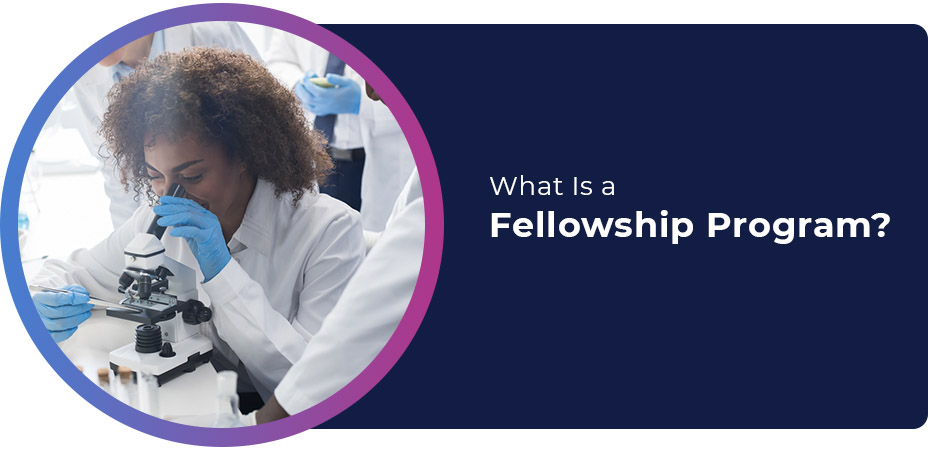
What Is a Fellowship Program?
Students apply to fellowship programs for all sorts of reasons. Some are looking for an opportunity to do amazing work in their chosen field. Others hope that their fellowship will provide entry to their first job out of college, and others still wish to seek out fellowship programs to help them pay for a graduate degree.
But what is a fellowship program, exactly? Tallo is here to break it all down.
Related: What Is a Graduate Degree?
The term “fellowship” can be hard to define because it’s often used to describe a variety of different programs. In undergrad circles, for example, the term may be used to refer to merit-based scholarships awarded to a student to help them pay for their academic pursuits. Occasionally, private-sector employers will use the term to describe an entry-level job opportunity that’s geared toward recent college graduates.
But, in general, fellowships are monetary awards that are given to scholars to help provide funding for their education. Usually, fellowships:
- Are short-term opportunities that last anywhere from a few months to a few years.
- Focus on the fellow’s professional field of study.
- Are sponsored by an organization with an interest in advancing the field.
Apart from those key characteristics, fellowship programs can look wildly different across disciplines and programs. Some fellowships help students pay for educational costs, such as books and tuition, while others may be used to fund research projects. Some programs require fellows to participate in an internship or service commitments.
Fellowship vs. Scholarship–What’s the Difference?
The difference between fellowships and scholarships is fairly simple. Fellowships are awarded to students based on their future potential, while college scholarships are awarded based on past achievements.
DISCOVER COLLEGE SCHOLARSHIPS
Additionally, fellowships are not usually need-based. Fellowships typically want applicants who can point to past successes that demonstrate their potential to do something impressive in their field.
Related: How to Find College Scholarships
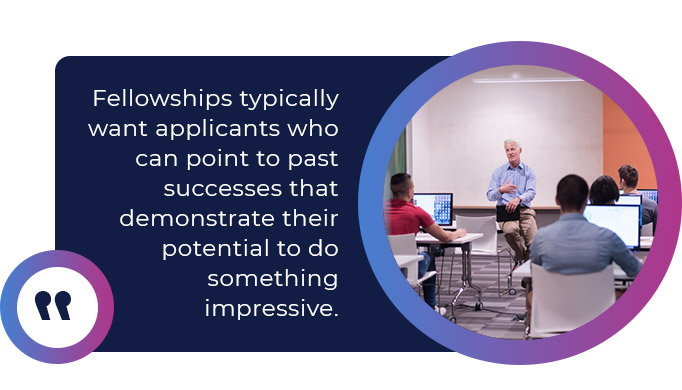
Who Should Apply to Fellowship Programs?
While most fellowships take place at the graduate level, this is beginning to change. Many fellowships (like Google’s Public Policy Fellowship) now invite both senior undergraduate and graduate students to apply to their programs. In fact, some fellowships specifically require the applicant to be an undergraduate student, such as the James C. Gaither Junior Fellows program .
What Are the Benefits of Fellowship Programs?
Now, onto the most important question: Why should you apply for a fellowship? Here are a few reasons why securing a fellowship could be a smart move:
- Funding for school: Like college scholarships, securing a fellowship can help knock down the sticker price on your education. Just be sure to read the financial terms before you accept a fellowship. Also, keep in mind that you can apply for both college scholarships and fellowships.
- Networking opportunities: Participating in a fellowship can connect you with highly-respected professionals in your field. These individuals may be invaluable when it comes to finding your first job out of college.
- Make a lasting impact: Perhaps most importantly, a fellowship program can provide an opportunity to do amazing work in your field of study. Unlike many internships, fellowships allow students to perform in-depth research and intensive training. Who knows? You could find yourself working with NASA to develop innovative technologies or participating in a Greenlining fellowship program to help take on racial and economic injustice.
How to Find a Fellowship
Fortunately, fellowships aren’t too difficult to find. A simple search for [Fellowships + your field of study] on Google will likely turn up plenty of results.
Here are a few additional resources for finding fellowship programs:
- Professors: One of the best resources for fellowship programs is going to be your professors. Ask them if they know of any fellowship programs that you might be a good fit for. (Hint: Your profs are also a great source for getting letters of recommendation for your fellowship.)
- College advisor: Next stop: your college advisor. They’ve probably walked a number of students through internships, fellowships, assistantships—you name it. Start building a relationship with your college advisor so you can tap them for career opportunities.
- Search for internships: Take a closer look at internship opportunities in your field (stick with us here). The truth is that many internships are nearly indistinguishable from fellowships, so don’t be so quick to rule them out.
Final Thoughts
Pursuing a fellowship program can extend your skills, boost your professional reputation, and help you achieve your academic goals. However, many fellowships are also quite competitive, so you’ll need to bring your A-game when submitting your application. If you’ve got the passion, drive, and a glowing recommendation, you’ll likely be considered a great candidate for a fellowship.
GET STARTED WITH TALLO
Are you considering a fellowship program or know someone who has? Share your experience with the Tallo Community . The Tallo Community is filled with students, scholars and professionals who are sharing their experiences as they work to fulfill their dreams.
Image Credits:
Source: ProStockStudio/Shutterstock
Source: Gorodenkoff/Shutterstock
Source: dotshock/Shutterstock
RELATED POSTS
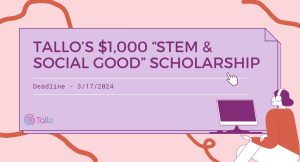
Scholarship Alert: Tallo’s $1,000 “STEM & Social Good” Scholarship

Unlock the Potential of Early Talent: Discover the Early Talent Playbook
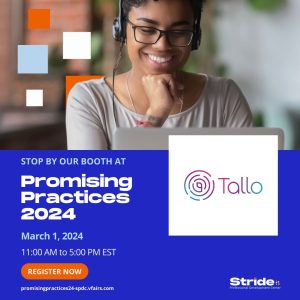
Join Us at Stride, Inc.’s Promising Practices 2024 on March 1st!
Start charting your path today..
Connect with real educational and career-related opportunities.
Get Started


Funding for biomedical research and innovation
Phd studentships and doctoral fellowships.
A PhD is a postgraduate research degree, usually lasting three or four years, if undertaken full time. It involves independently conducting original and significant research in a specific field and is normally assessed by a written thesis and oral examination.
Funding options available
Alzheimer’s Research UK: PhD scholarships Funding to undertake a PhD involving biomedical research in Alzheimer’s disease and other dementias. Applications are made by the prospective supervisor. Funding: Stipend plus tuition fees and research/travel costs Duration: 36 months
Alzheimer’s Society: PhD studentships Funding to undertake a PhD involving biomedical research in Alzheimer’s disease and other dementias. Applications are made by the prospective supervisor. Funding: Up to £85,000 (£91,000 for London) Duration: Three years
British Heart Foundation: Non-clinical PhD studentships Funding to undertake a PhD in cardiovascular science. Applications are made by the prospective supervisor. Funding: Stipend, tuition fees, consumables Duration: Three years
British Heart Foundation: Four-year PhD programme Funding for research organisations to provide a PhD studentship programme in cardiovascular research. Career stage: Prospective students should apply to individual research institutions Funding: Student stipend, tuition fees, research consumables Duration: Four years
MRC: Studentships Find out more about how MRC funds and supports PhD students at universities and MRC units, institutes and centres.
National Centre for the Replacement Refinement & Reduction of Animals in Research: PhD studentships Funding to undertake a PhD studentship relevant to any area of medical, biological or veterinary research which supports the development and application of the 3Rs. Funding: Cash-limited award of £30,000 pa (£90,000 total over three years) Duration: 36 months
National Institute for Health Research: Doctoral fellowships Funding to undertake a PhD in an area of NIHR research. Funding: Fully funded including current salary Duration: 36 months with p/t options
Last updated: 6 July 2022
This is the website for UKRI: our seven research councils, Research England and Innovate UK. Let us know if you have feedback or would like to help improve our online products and services .
Undergraduate Admissions
Find endless opportunities to explore your interests and make new connections.
- Information for Prospective Students
- The CAS Advantage
- Plan Your Visit
- Apply to BU
Graduate Admissions
Learn about requirements, deadlines, financial aid, and opportunities for professional preparation in our world-class programs.
MA & MS Applicants
- Requirements & Deadlines
- Tuition & Fees
- Visit Us Virtually
- MA & MS Apply
PhD & MFA Applicants
- Fellowship Aid
- Contact GRS PhD Admissions
- PhD & MFA Apply
- Dean’s Corner
- Arts & Sciences Magazine
- Research & Discovery
Aid for PhD Students
The Graduate School of Arts & Sciences (GRS) awards various types of fellowship aid to PhD students. All newly admitted domestic and international PhD students will receive a 5-year fellowship offer, which may be a combination of a non-service fellowship (such as a Dean’s Fellowship), teaching fellowship, or doctoral research fellowship, depending on the department of admission.
The fellowship is contingent upon you maintaining Good Academic Conduct, maintaining Good Academic Standing, and making Satisfactory Academic Progress, as defined by your department and the Graduate School of Arts and Science. This funding includes a full tuition scholarship, mandatory student fees, payment of the premium for BU’s basic Student Health Insurance Plan (SHIP); and a living stipend as described in your admission offer letter. Detailed information about the fellowship awards and the policies and privileges associated with each award can be found below.
PhD Fellowships
Non-service fellowships.
- Dean’s Fellowships
- Martin Luther King Jr. Fellowship
- Whitney M. Young Jr. Fellowship
- Foreign Language Area Studies (FLAS) Fellowship
- Trainee Fellowships
- Various prestigious departmental fellowships.
Non-service fellowships provide a stipend and scholarship for exceptional students to focus primarily on their degree coursework with no departmental research or teaching responsibilities. Students awarded non-service fellowships are required to enroll in a full load of academic courses as determined by the department.
* International students may have 14% withheld in taxes. Refer to our Tax FAQs .
Teaching Fellowships
A Teaching Fellowship provides a stipend and a full scholarship and an opportunity for graduate students to gain classroom experience under the close supervision of the faculty members who have the formal responsibility for the courses to which the teaching fellows are assigned. Your obligation in this fellowship would include instructional duties assigned by your department. Instructional and other duties total approximately 20 hours per week.
* Service stipends are considered earned income for tax purposes and the University will withhold and report the earnings per IRS guidelines. Refer to our Tax FAQs .
Doctoral Research Fellowships
Doctoral Research Fellowships provide a stipend and scholarship for exceptionally qualified students in return for research work done for the department. Your obligation in this fellowship will include research duties assigned by your department that total no more than 20 hours per week.
Additional Funding Opportunities
Summer funding, bloom dissertation fellowships.

The Graduate School of Arts & Sciences (GRS) is pleased to announce the creation of the Bloom Dissertation Fellowships. These fellowships have been created thanks to the generous estate gift of CAS alumnus, Laurence A. Bloom (DGE’66, CAS’68). These competitive Fellowships are designed to provide summer funding to GRS doctoral students in the social sciences and the humanities, who will be in their final summer prior to graduating, enabling them to focus on completing their dissertation.
Eligibility
To be eligible to apply, a doctoral student must:
- Be enrolled in a program in the humanities or social sciences, or if outside these two divisions, use social science methods in their research (e.g. in Earth & Environment or Economics)
- Not already receive 12 months of support
- Be completing their degree in December 2024 or Spring 2025
This fellowship provides up to four months of funding, at a monthly rate of $3,283.38 (summer 2024 rate).
Application Portal
InfoReady: https://bu.infoready4.com/#freeformCompetitionDetail/1921991
Application
To apply for this fellowship, students must submit via InfoReady:
- A cover letter describing how this opportunity would help them advance their dissertation research and/or writing. The letter should also indicate how many months of support the applicant is requesting (up to four months; and funding will not be given for any time that is covered through other sources of funding).
- A current CV
Additionally, the following will be requested (and submitted by the respective person via InfoReady).
- A letter of recommendation from their dissertation advisor indicating their support of the candidate’s application.
- A letter of support from the department chair or program director, and confirming that the candidate does not already have 12 months of funding—from internal and/or external sources.
Applications are due via InfoReady by 11:59 PM ET December 1, 2023 for summer 2024. All supporting letters will be due by 11:59 PM ET December 8, 2023. A committee will review all applications and notify awardees in January.
Graduate Internship Funding Program (GIF)
The Graduate School of Arts and Sciences is pleased to announce a new internship funding pilot program, GIF. This is aimed at helping GRS PhD students receive a stipend for an otherwise unpaid summer internship. This summer, only applications for Massachusetts-based internships will be considered.
Please see below for eligibility and application requirements.
Summer 2024 InfoReady Application Portal: https://bu.infoready4.com/#freeformCompetitionDetail/1931792
Applications are due by April 1, 2024 at 11:59 PM ET . We highly recommend submitting it before the deadline as you may experience delays on the site.
Required Application Materials (in PDF format, submitted via InfoReady)
-Cover Letter: This personal statement should share how this internship aligns with the applicant’s professional goals and what they hope to gain from the experience. 250-1000 words.
– Current CV
– 1 letter of recommendation (from the applicant’s current BU Faculty Advisor)
– Copy of the internship offer letter (scanned email offers are also acceptable as long as the organization and their contact information is clearly communicated).
Social Science PhD Internship Program
Together, the Associate Provost for Graduate Affairs, the Associate Dean of the Graduate School of Arts & Sciences, and the Center for Innovation in Social Sciences are pleased to provide stipend-supported summer internships aimed at introducing PhD students in Social Sciences fields (including PhD students in Anthropology, History, Political Science and Sociology in the Graduate School of Arts & Sciences) to career opportunities at institutions beyond academia. Interns will bring to their roles the array of skills developed during their PhD training, including research and writing and area-based expertise.
Internships will run for approximately 10 weeks. Interns will serve in their roles for no more than 20 hours per week and will receive a $7,000 stipend.
Applications include a CV, a personal statement, and two letters of recommendation.
Application Portal: https://bu.infoready4.com/#competitionDetail/1896928
Applicants should request recommendations through this portal; please allow adequate time for your recommenders. Applicants will be evaluated in terms of their academic accomplishments (including degree progress) and the appropriateness of their professional goals for this program.
Please note that in the application you will identify your first and second choice internship. You will be asked to explain both choices.
Applications will be accepted until 11:59 PM ET, April 12 th , 2024
Interns are required to furnish a final written report about their experience. Interns will also participate in a larger Summer PhD Internship cohort through the Professional Development and Postdoctoral Affairs Office.
If you have questions, please contact Nico Quesada ( [email protected] ), Program Associate for the Society of Fellows and Graduate Professional Development.
2024 Sites:
- The Coalition for Transformational Education
- Partners in Health
- The Center for Mind and Culture
- BU School of Public Health – Health Equity Research Lab
PhD Summer Internships in the Humanities
The Office of the Associate Provost for Graduate Affairs and the BU Center for the Humanities (BUCH) are pleased to offer stipend-supported summer internships aimed at introducing PhD students in humanities fields to career opportunities at institutions beyond academia. These internships receive generous support from the Demir Sabanci (CAS’ 93) Experiential Learning in the Humanities Fund.
Learn more at the BUCH Internship Website: https://www.bu.edu/humanities/opportunities/graduate-opportunities/phd-internships/
Campagna-Kerven Fellowship
The Fellowship: The Campagna-Kerven Graduate Fellowship, endowed by a bequest from Madame Susanne Campagna, provides a fellowship to a PhD student in the Graduate School of Arts & Sciences whose doctoral dissertation deals substantially with an aspect of modern Turkey. This includes Turkish culture, society, politics or economics in the 20 th or 21 st century. The Fellowship includes a non-service stipend of $34,147.50 which is paid from August through May (10 monthly payments), health coverage at the basic level, and all necessary fees.
Eligibility: The fellowship is open to PhD students in the Graduate School of Arts & Sciences who are defining or preparing their dissertation. Preference will be given to students who have passed all qualifying exams and are either preparing their dissertation prospectus or have had their prospectus approved by the faculty of their program. The dissertation must focus, at least in part, on some aspect of modern Turkey which is defined as the Republic of Turkey or the Turkish people and culture in the 20 th or 21 st century. A student awarded the fellowship may not hold another fellowship simultaneously.
Applications: Applications consist of a two-page description of the dissertation project together with a letter of support from the student’s supervisor/first reader that comments on the significance and feasibility of the project.
Deadline: Applications for the 2024-2025 fellowship should be submitted via the InfoReady portal (link coming soon) by April 15, 2024 . Selection will be made by a committee of GRS faculty by early May.
Newman Fellowship
The Fellowship: The Henry S. Newman Graduate Student Fellowship, endowed by Mr. Newman in honor of his daughter Dori Newman (CAS ’69), provides a fellowship to a PhD student in the Graduate School of Arts & Sciences whose dissertation focuses on some aspect of immigration to America. Mr. Newman immigrated to America following World War II after having survived two years in a concentration camp. The Fellowship includes a non-service stipend of $34,147.50 which is paid from August through May (10 monthly payments), health insurance coverage at the basic level, and all necessary fees.
Eligibility: The Fellowship is open to PhD students in the Graduate School of Arts & Sciences who are preparing their dissertation. Students must have passed all qualifying exams and had their dissertation prospectus approved by the faculty of their program. The dissertation must focus on some aspect of immigration to America. A student awarded the fellowship may not hold another fellowship simultaneously.
Applications: Applications consist of a two-page description of the dissertation project together with a letter of support from the student’s supervisor/first reader that outlines the significance and feasibility of the project.
Deadline: Applications for the 2024-2025 fellowship should be submitted via the InfoReady Portal (link coming soon) by April 15, 2024 . Selection will be made by a committee of GRS faculty in early May.
Graduate Research Abroad Fellowships (GRAF)
The GRAF I cycle is now closed. Students can view their applications on InfoReady: https://bu.infoready4.com/#competitionDetail/1919096
GRAF II Cycle applications are now being accepted via InfoReady: https://bu.infoready4.com/#competitionDetail/1921844 until 11:59 PM on February 5, 2024 .
The Graduate School of Arts & Sciences has established a fellowship program, the Graduate Research Abroad Fellowship (GRAF) , to support foreign-based research by doctoral students in the Graduate School of Arts and Sciences whose field-based or archival research requires an extended period of residence in another country or countries.
GRAF awards may not be used for foreign-based study or training such as acquiring language skills, equipment, personal expenses not related to the GRAF proposal, or for attending professional conferences. GRAF awards are non-service and are in addition to a student’s 5 year funding package. They cannot be used during a semester where the student receives a teaching or research fellowship.
There are two kinds of Graduate Research Abroad Fellowships:
- The Short-term GRAF supports travel and living costs during a period of study abroad up to, but not exceeding, 3 full months. For trips taken during the academic year when students will normally be supported by another fellowship, up to $4,000 in travel costs can be provided. For trips during the summer (June 1 through August 31) a fellowship can provide up to $6,000.
- The Long-term GRAF enables a student to spend an extended period (4 or more months/at least a full semester) of foreign-based field or archival research. It provides up to $16,250 to cover living, travel, and research expenses. A Long-term GRAF also provides Continuing Study Fees and the cost of participation in the basic BU student health plan for the time the student is abroad.
Fellowships will be awarded to students nominated by their departments and recommended by a faculty committee.
- Applicants should have completed their prospectus and other doctoral program requirements except the dissertation by the time the proposed project is scheduled to begin . An exception to this may be made in disciplines where travel would be necessary to complete the prospectus, however this can only apply to short-term GRAF proposals.
- Applicants must be registered as BU GRS PhD students. For help with initiating a continuing student registration for students who will not be registering for classes, please contact your Department Administrator.
- Applicants must not have a conflicting teaching or research fellowship . For example, if a student receives a TA fellowship in Fall 2023, then they should not be traveling during that semester. Additionally, a student should not have a research fellowship during their semester of travel.
- A pplicants must disclose other forms of funding for their research, and if they previously received a GRAF or GRUF award. This also includes pending applications to other grants or fellowships related to their GRAF project. Failure to do so will result in a disqualification for that cycle.
GRAF Cycles and Travel
GRAF I (previously Fall GRAF)
- Student InfoReady Submission Deadline: 11:59 PM November 1, 2023
- InfoReady Portal: https://bu.infoready4.com/#competitionDetail/1919096
- Departmental Acknowledgement and Letter of Reference Submission Deadline: 11:59 PM November 17, 2023
- For travel that begins on or after February 1, 2024.
- Decisions made by mid-December, 2023
GRAF II (previously Spring GRAF)
- InfoReady Portal: https://bu.infoready4.com/#competitionDetail/1921844
- Departmental Acknowledgement and Letter of Reference Submission Deadline: 11:59 PM February 19, 2024
- For travel that begins between June 1, 2024 and March 1, 2025
- Decisions made by early March 2024.
Application Process (GRAF I Cycle)
Phase I : Interested students will submit their application via InfoReady by 11:59 PM on November 1, 2023. Late applications will not be accepted. This will include:
- GRAF Budget Template
- If approval is not granted before the application deadline, a copy of the email to IRB is admissible, however applicants will not be awarded funds until IRB approval is received.
- An unofficial transcript (A screenshot from the StudentLink is preferred)
- A letter of recommendation from the student’s advisor (this will be due on November 17th and will be submitted via a link sent by InfoReady)
- Describes the problem or question that the proposed research will address, links it to existing scholarship on the topic, and shows why the research will best allow for you to to answer or illuminate it. Remember that the review committee has a broad membership across disciplines.
- Includes a proposed timeline for the project along with travel locations.
- Clearly discloses all other forms of funding received or being applied to for the project. (Failure to do so can result in your award being rescinded should you be selected).
- A disclosure of previous GRUF or GRAF support received and why the applicant should receive additional GRAF funding.
Phase 2 : Submitted applications will then be routed to the student’s home department/program and Director of Graduate Studies (or equivalent faculty member) to be considered for nomination. Departments will need to approve or deny nominations via InfoReady by 11:59 PM on November 17, 2023. They will also need to include a filled and signed copy of the GRAF DEPT Acknowledgement Form .
Phase 3: Nominated students will then be reviewed by the GRAF Committee with award decisions being made by mid-December 2023. Decisions will be sent via an InfoReady email to all applicants and their department administrators.
Departmental Phase 3 Submissions
There is no limit on the number of short term GRAF proposals that a department/program can advance to Phase 3; however, only a maximum of 3 long-term GRAF proposals per department/program will be considered .
Please note that preference will be given to applicants who have not previously received a GRAF or GRUF award.
GRAF Award Terms
In order to receive a GRAF stipend, students must be registered as BU GRS students for the semester of their project travel.
Failure to disclose other forms of research funding can result in the loss or reduction of the GRAF award.
All students awarded GRAF will need to submit the following upon completion of their travel:
- A one page summary detailing what they accomplished and recommendations for future GRAF recipients.
- A copy of flight receipts.
Failure to travel within a year from the award letter date will result in the GRAF being rescinded. If an extension or adjustment is needed, please email [email protected]
GRAF Award Disbursement
GRAF funds will be disbursed to awardees by the Graduate School of Arts and Science upon request. Please send an email with your signed award letter, updated travel dates, and BUID to [email protected] to request disbursement. Please note that it can take up to two weeks for funds to be disbursed, so please plan accordingly.
For any questions regarding GRAF, please contact the Graduate School of Arts and Sciences Financial Aid team at [email protected] . Please include your BU ID in all correspondence.
Graduate Research in the United States Fellowship (GRUF)
The GRUF I cycle is now closed. Students can view their applications on InfoReady: https://bu.infoready4.com/#competitionDetail/1919241
GRUF II cycle applications are now being accepted via InfoReady: https://bu.infoready4.com/#competitionDetail/1921854 until 11:59 PM on February 5, 2024
The Graduate School of Arts & Sciences has established a fellowship program, the Graduate Research in the United States. Fellowship (GRUF) , to support research by GRS PhD and MFA students whose field-based or archival research requires travel to and a period of residence in another city/state within the United States. This fellowship is open to GRS PhD and MFA students whose research needs additional sources of funding. GRUF awards may not be used for foreign-based study or for attending professional conferences. GRUF may be used for other research or professional opportunities (such as a field school or workshop).
GRUF awards are non-service and are in addition to a student’s 5 year funding package.
There are two kinds of GRUF fellowships :
- The Short-term GRUF supports travel and living costs during a period of study outside of Massachusetts, but not exceeding, 3 full months. The award for a short-term GRUF is up to $6,000. Short-term GRUF can be used for shorter research trips.
- The Long-term GRUF enables a student to spend an extended period (4 or more months/at least a full semester) of United States-based field or archival research outside of Massachusetts. It provides up to $16,250 to cover living, travel, and research expenses. A Long-term GRUF also covers Continuing Study Fees and the cost of participation in the basic BU student health plan for the time the student is traveling.
- Applicants must be registered as BU GRS PhD or MFA students. For help with initiating a continuing student registration for students who will not be registering for classes, please contact your Department Administrator.
- Applicants must not have a conflicting teaching or research fellowship . For example, if a student receives a TA fellowship in Fall 2023, then they should not be traveling during that semester. Additionally, a student should not have a conflicting research fellowship during their semester of travel.
- Applicants must disclose other forms of funding for their research, and if they previously received a GRUF or GRAF award. This also includes any pending applications for grants or fellowships related to their GRUF project. Failure to do so will result in a disqualification for that cycle.
GRUF Cycles and Travel
- InfoReady Portal: https://bu.infoready4.com/#competitionDetail/1919241
- InfoReady Portal: https://bu.infoready4.com/#competitionDetail/1921854
Application Process (GRUF I Cycle)
- GRUF Budget
- If approval is not granted before the application deadline, a copy of the email to IRB is admissible, however applicants will not be awarded funds until IRB approval is received.
- Describes the problem or question that the proposed research will address, links it to existing scholarship on the topic, and shows why the research will best allow for you to answer or illuminate it. Remember that the review committee has a broad membership across disciplines.
Phase 2 : Submitted applications will then be routed to the student’s home department and Director of Graduate Studies to be considered for nomination. Departments will need to approve or deny nominations via InfoReady by 11:59 PM on November 17, 2023. They will also need to include a filled and signed copy of the GRUF DEPT Acknowledgement Form
Phase 3: Nominated students will then be reviewed by the GRUF Committee with award decisions being made by mid-December 2023. Decisions will be sent via an InfoReady email to all applicants and their department administrators.
There is no limit on the number of short-term GRAF proposals that a department/program can advance to Phase 3; however, only a maximum of 3 long-term GRAF proposals per department/program will be considered .
GRUF Award Terms
In order to receive a GRUF stipend, students must be registered as BU GRS PhD/MFA students for the semester of their project travel.
Failure to disclose other forms of research funding can result in the loss or reduction of the GRUF award.
All students awarded GRUF will need to submit the following upon completion of their travel:
- A one-page summary detailing what they accomplished and recommendations for future GRUF recipients.
Failure to travel within a year from the award letter date will result in the GRUF being rescinded. If an extension or adjustment is needed, please email [email protected]
GRUF Award Disbursement
GRUF funds will be disbursed to awardees by the Graduate School of Arts and Sciences upon request. Please send an email with your signed award letter, updated travel dates, and BUID to [email protected] to request disbursement. Please note that it can take up to two weeks for funds to be disbursed, so please plan accordingly.
For any questions regarding GRUF, please contact the Graduate School of Arts and Sciences Financial Aid team at [email protected] . Please include your BU ID in all correspondence.
GSO Travel Grants
Twice a year, the Graduate School of Arts & Sciences Graduate Student Organization (GSO) accepts applications for travel grants. The GSO offers two types of awards :
- Presentation travel grants : For students planning on directly participating in a conference or research forum by presenting a paper or poster, participating in a discussion panel, or chairing a discussion or paper session.
- Research travel grants : For students planning to visit an archive, attend a training workshop, or use a research facility.
For instructions, application, and more details please visit the GSO website .
Additional details and policies
Stipend payments.
For information regarding your stipend payments, please visit our Stipends FAQ page.
Tax Information
For information regarding your stipend and taxes, please visit our Tax Information FAQ page.
Cost of Attendance
For a breakdown of the tuition and fees for an academic year at Boston University as a student in the Graduate School of Arts & Sciences as well as an estimated cost of attendance, please visit our Cost of Attendance (COA) page.
Tuition Scholarships
Your PhD funding includes a qualified tuition scholarship as defined in 26 USC Section 117(a) of the U.S. Internal Revenue Code; it is contingent upon you maintaining Good Academic Conduct , maintaining Good Academic Standing , and making Satisfactory Academic Progress ; it is not contingent upon your appointment as a teaching or research fellow and is not taxable to you as the recipient.
Your fellowship covers the cost of tuition for up to 18 credits per semester, as long as they are required by your degree or are necessary for your research (with approval from your DGS and advisor). It does not cover the cost of courses that are not required (ex: Physical Education (PDP) course ). The tuition for 11 or less credits is calculated on a per credit rate; whereas the cost for 12-18 credits is a flat fee. For example:
- If a student enrolls in 14 credits that are degree requirements, then adds 1 to 4 credits that do not count towards their degree (ex: a Physical Education (PDP) course ), and the total credits does not exceed 18, the additional 1 to 4 credits will not generate an additional tuition charge.
- If this student (who has 14 credits of degree requirements plus 1 to 4 credits that do not count towards their degree) decides to drop a 4-credit degree requirement, this leaves only 10 credits of degree requirements and only this 10 credits will be covered by scholarship. In this case, the student will be responsible for the payment of the additional 1 to 4 credits (ex: a PDP course). Please keep this in mind when adding and dropping any of your courses.
Each semester, once you have registered, you will need to make sure your student account is “settled” by the semester’s payment deadline . Please log in to the MyBU Student Portal and click on the “Money Matters” tab to view your charges & credits once you have finalized your spring registration.
You may have receive an automated email (“e-bill”) from Student Accounting Services (SAS). SAS sends out automated email notifications to all undergraduate and graduate students (and may apply late fees) as most students at Boston University are not in a fully funded PhD program and are therefore responsible for payment. While GRS PhD students should never ignore emails from SAS, as there could be a legitimate reason for the balance ( Physical Education (PDP) course , sports pass, convenience points, MBTA pass, something that is not covered), they do not need to worry about any late fees if all we had to do is adjust their scholarship.
GRS generally applies the same amount of scholarship to the fall and spring semesters assuming the student will continue to enroll in the same number of credits in both semesters. Once the initial scholarship has been applied, we wait until the end of the spring semester’s add/drop period (mid-October/late February) to manually reconcile everyone’s registration and scholarship. The majority of our PhD and MFA students will continuously add and drop classes over a six-month period which is the reason why our office waits until the end of the add/drop period before we start reconciling any scholarships. You may email us at [email protected] as soon as you have finalized your course selection for the semester so that we can adjust your scholarship right away. Please include your BU ID when emailing our office.
If you have questions about your student account, your scholarship, stipend, or insurance credit, please contact GRS Financial Aid at [email protected] (and include your BU ID). Please note that Student Accounting Services, the Payroll Office, Student Employment, and the Registrar do not have any information regarding students’ funding or fellowship. Please contact GRS Financial Aid instead.
Payment Deadlines
Payment/Settlement Procedures
Sports Pass
Students who enroll full-time (or are certified full-time) are automatically enrolled in the Sports Pass each year. The Sports Pass is not a membership to the University’s FitRec Center (that’s already included in your Health & Wellness Fee and it is covered by your fellowship). The Sports Pass costs $140 per year and it allows you admission to all home events at the Agganis Arena. The cost of the Sports Pass is not covered by your fellowship. For individualized information regarding your Sports Pass, or to cancel your sports pass prior to September 1, visit the MyBU Student Portal and go the Money Matters tab. To cancel your Sports Pass after September 1, please bring your BU ID card to the Agganis Arena Ticketing Office to ensure your Sports Pass has not been used. For additional questions regarding the Sports Pass and the charge on your account, please contact the Agganis Arena Ticket Office at 617-353-4628.
Health Insurance
As part of your fellowship award, the University will cover the cost of your individual participation in the Boston University Basic Student Health Insurance Plan ($3,280 in AY23-24). Students who opt to purchase the Boston University Student PLUS Plan ($4,403 in AY23-24) will be responsible for payment of the difference in the premium amount ($1,123 in AY23-24) by the payment deadline for the Fall semester. Please refer to Student Health Services for more information. The University will not cover any health insurance costs for dependents. Family coverage is available at an additional cost to the student.
Health insurance coverage extends from August 15, 2023 through August 14, 2024 for students who are enrolled in the Fall semester 2023. Please note that coverage takes effect once fall registration has been processed or on August 15, whichever is later.
Students who are required to have health insurance are automatically enrolled in the Boston University Basic Student Health Insurance Plan (SHIP).
Who is required to have health insurance?
Under the laws of Massachusetts, the following students are required to participate in a qualifying health insurance plan:
- Students certified as full-time
- Students who are registered for 75% or more of a full-time course load (nine or more credit hours for most schools)
- International students (students who are not U.S. citizens and who do not have approved refugee or permanent resident status)
Part-time students are not automatically enrolled but can request to be enrolled. If a student wishes to waive the insurance, a health insurance waiver form must be submitted. For more information about insurance coverage and deadlines for enrollment/waivers, please consult Student Health Services .
Graduate students receive an insurance credit of half the cost ($1,640 in fall 2023/$1,640 in spring 2024) in each semester that they receive a stipend of at least $5,000 (refer to insurance credit info for service stipends and non-service stipends ). Students who do not receive a stipend of at least $5,000 in both fall and spring may be responsible for the payment of any remaining balance by the payment deadline . Students who graduate in January or who go part-time in spring can enroll in fall only coverage before December 31; in this case, the coverage will end on December 31 but they will not have to pay the full annual premium.
For questions about your insurance credit, please email GRS Financial Aid at [email protected] (and include your BU ID). For questions about enrollment in student health insurance, please contact the Student Health Insurance Team at [email protected] .
Dental Care
Students have the option to purchase Dental Care through the University, which is not included in the fellowship award.
Residency Requirement
Boston University requires Ph.D. students to be present on campus unless their research or fieldwork requires them to be elsewhere. This requirement is in place to ensure that students can focus on their full-time studies and regularly engage with faculty members. Those pursuing a Ph.D. from the Graduate School of Arts & Sciences must live in the Boston region during the semester(s) in which they receive GRS support, and they are expected to participate in departmental and University activities. Students who leave the Boston region outside of required research or fieldwork during their first five years may forfeit their guaranteed fellowship funding. We understand that students may have personal reasons to leave the area, but such arrangements often violate policies and laws that prohibit payments. Students beyond their fifth year of study who leave the Boston region will not be eligible for a service fellowship, such as a research fellowship unless required to be elsewhere for their research or fieldwork. All teaching fellows must be in residence.
Employment Policy
The purpose of fully supporting our graduate students is to allow them to engage wholly in their scholarly work and to devote the attention necessary to complete their studies in a timely fashion. We expect that you will not be employed outside of Boston University during semesters in which you receive GRS support. The Graduate School of Arts & Sciences policy limits the amount of additional work that may be assigned to graduate students in any semester when they are appointed to a Teaching, Graduate Research, or Non-Service Fellowship. For this reason, we expect students to devote no more than 20 hours per week to their assigned fellowship activity. For this same reason, students are not eligible to hold a Resident Assistant (RA) position, a Graduate Resident Assistant (GRA) position, or a Graduate Housing Assistant (GHA) position with Residence Life. While we occasionally permit PhD & MFA students to hold additional assignments, this is an exception and requires advisor and administrative approval (refer to Student Work Hours for Employment at Boston University Policy ). Under this policy, such fully funded students may be employed as graders or other similar positions for additional payment only under the following conditions:
- The assignment provides the student with an opportunity for professional growth in teaching and/or in expert knowledge of course topics or research; and
- The assignment does not exceed five (5) hours/week averaged over the semester; and
- The payment is set up as a weekly salary.
Vacation Policy for PhD Students
The University’s policy is that all PhD students receiving stipend support are entitled to paid vacation time. Please refer to the University’s Policies page. International students who want to travel internationally should contact Boston University’s International Students and Scholar’s Office (ISSO) to make sure they are able to leave and return to the U.S. without any issues.
Good Academic Conduct
All students at the Graduate School of Arts & Sciences are expected to maintain high standards of academic honesty. It is each student’s responsibility to be aware of the content of the GRS Academic Conduct Code , which can be found on the Graduate School of Arts & Sciences website.
Please note: The GRS Academic Conduct Code is distinct from Good Academic Standing ( Master ’ s , PhD ) requirements and Satisfactory Academic Progress (SAP). Please see the relevant Bulletin pages for additional information about those policies.
Good Academic Standing
The Graduate School of Arts & Sciences requires graduate students to maintain Good Academic Standing in order to remain enrolled in their graduate program and/or to retain GRS scholarship and/or fellowship support. The GRS criteria for Good Academic Standing are as follows:
- Have no more than two failing or W grades.
- Meet all milestones of the degree, such as comprehensive exams, qualifying exams, and dissertation prospectus, on the schedule specified by the program.
- Meet all milestones of the degree with sufficient quality of work as specified by the program.
- Satisfactorily fulfill all service fellowship obligations, as specified by the program.
Please note: Good Academic Standing is distinct from Satisfactory Academic Progress (SAP) and the GRS Academic Conduct Code . Please see the relevant Bulletin pages for additional information about those policies.
Satisfactory Academic Progress
Fellowships will continue for the duration of the five-year commitment if the student is making satisfactory academic progress each year, confirmed by the Graduate School of Arts & Sciences.
The GRS minimum standard for Satisfactory Academic Progress is:
- Maintain a Cumulative Grade Point Average (GPA) of 3.0 or higher
- Have no more than 2 failing grades (lower than B- or an incomplete grade older than 12 months) and/or W grades
- Pass all milestones of degree, such as comprehensive exams, qualifying exams and dissertation prospectus, on the schedule specified by the program
- Pass all milestones on the degree with sufficient quality of work as specified by the program
- Satisfactorily fulfill their service fellowship obligations as specified by the program
You are using an outdated browser. Please upgrade your browser to improve your experience.
Fellowships & Research
[Insert Research / Healy05-C-cloned.jpg 6.02MB. Permission requested. Still pending.] [image caption] Fellowships and research are excellent experiential learning opportunities that help students develop as professionals and as scholars.
What Is A Fellowship?
Fellowships are short-term, paid, opportunities that are sponsored by a specific organization and obtained through a competitive application process. Organizations sponsor Fellowships for multiple reasons. Most often they are seeking to expand their field by funding research, curating talent for the future workforce, and developing leaders. To satisfy that purpose, host organizations engage Fellows in challenging work and invest in their professional development.
There are a vast number of Fellowships, and programs vary widely. They can be designed to support a range of activities including graduate study in a specific field, research to advance work on a particular issue, developing a new community-based organization or initiative, training and reflection to support the fellow’s growth, and opportunities to further explore a particular field of work. Fellowships can take place domestically or abroad and they can last from a few months to several years.
Finding Fellowships
There are many online resources available to assist you in your search for Fellowship opportunities. We created this Handshake page with a curated list of resources that will get you off to a great start!
FAQs about Fellowships
Experiential Learning
Fellowships are structured to provide significant work experiences, and Fellows are often expected to take on a great deal of responsibility quickly. Generally, Fellows are provided with unique experiences that are not typically available to someone starting out in an entry-level position. This experiential learning component varies depending upon the Fellowship program.
Fellowship programs are known for their commitment to the professional development of individual Fellows and often include intensive training. Key elements of this training might include:
- Academic seminars to develop frameworks and apply theory
- In-depth research and analysis of a particular issue area
- A broad curriculum of skills development which may include leadership, community organizing, public speaking, grant writing, and media relations
Most fellowship programs provide a living allowance or stipend, yet it is not typically comparable to the salary of a full-time job. Financial compensation can vary greatly with stipends ranging from $10,000 to up to $50,000 for a 9-12 month program. Other incentives may be provided to fellows such as healthcare coverage, student loan repayment assistance, and transportation and housing stipends.
Although eligibility requirements vary with the fellowship, most programs look for:
- Motivation, self-direction, and personal integrity
- Highly developed interpersonal, verbal, and written communication skills
- Demonstrated leadership and potential for continued leadership
- Proven competency in a certain field or discipline
- High level of academic performance.
Applications can be extensive and often include a resume, transcript, letters of recommendation and writing sample. Depending on the fellowship, there may be additional application materials required as well.
Additionally, the application process for most programs includes an interview which may be a series of individual interviews, a single panel interview, or situational group interviews in which candidates work together to devise responses to a problem or question.
- Mission & Vision
- Academic Calendar
- Doctoral Exam Schedule
- Graduate Programs
- Financial Support
- Priority Deadlines
- New Graduate Student Orientation
- Signature Events
- Degree Planning
- Embedded Counseling
- International Students
- Electronic Theses and Dissertations (ETD)
- Graduate Peer Mentoring
- Responsible Conduct of Research (RCR)
- Catalog and Handbook
- Graduate Assistantships Overview
- Graduate Student Support Plan
- Tuition, Fees and Other Resources
- Fellowships and Grants
- Goodnight Doctoral Fellowship
- Professional Development
- Five Competencies
- Teaching Programs
- Wellness Program
- Career Readiness Program for Non-Academic Careers
- Writing Program
- Leadership Program
- Office of Postdoctoral Affairs (OPA)
- Faculty & Staff
- Forms and Data
- GSC Resources
- ABGS Resources
- Resources for Student Funding
- Curriculum Development
- Program Assessment
- Recruiting Resources
- Alliances for Graduate Education and the Professoriate (AGEP)
- Give Now
Nationally Competitive Graduate Fellowships
Fellowships below are just a few of the many options that exist – this is NOT an exhaustive list. Please make sure to search the databases listed on the previous page for even more funding options.
The majority of fellowships have deadlines from October – January and require institutional nomination/assistance.
LEGEND: (M) = Master’s (D) = Doctoral/PhD candidates; Awards open to most programs unless designated “STEM”
Please click the headers to organize the table differently, if desired.
“*” indicates eligibility to international students
Fellowships and Training Opportunities

A Laboratory Leadership Service fellow operates a next generation sequencer instrument in a CDC streptococcus laboratory. Atlanta, GA (2017)
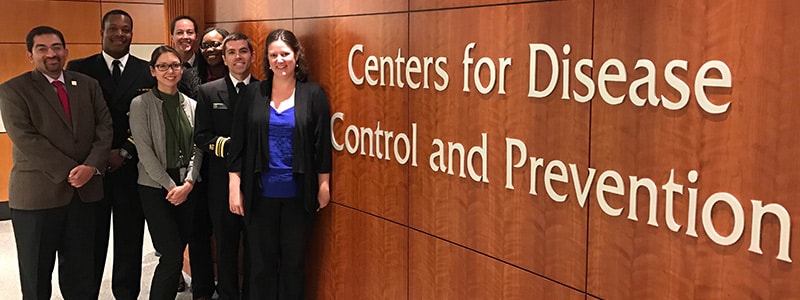
PMR/F learners work in a service learning environment to better understand how to efficiently address major population health issues. Washington, DC (2016)

Subscribe to the Fellowship Programs newsletter and envision your next big move as a fellow or intern at CDC!
- NCHS Data Detective Camp is open now through 3/28/2024.
- Epidemiology Elective Program is open now through 4/1/2024.
- Epidemic Intelligence Service is open now through 6/5/2024.
Whether you are on a career track or deciding on which career you would like to pursue, CDC has many diverse fellowship, internship, training, and volunteer opportunities for students and professionals. Many of these opportunities provide invaluable experience and potentially offer clear cut paths to exciting careers with CDC.
- Middle and High School Students
- Undergraduate Students
- Master’s Degree Students
- Doctoral Students
- Medical Students and Residents (MD/DO, DVM/VMD, DDS/DMD, etc.)
- Bachelor’s Degree
- Master’s Degree
- Doctoral Degree
- Medical, Veterinary, or Other Clinical Degree (MD/DO,DVM/VMD,DDS/DMD, etc.)
- Middle/High School Teachers
- Public Health Professionals
- Information for programs interested in hosting a fellow
- We offer a variety of training and continuing education opportunities
- Recruitment Tools
- Additional Public Health Opportunities
- Careers at CDC
Includes a summarized snapshot of opportunities to encourage interest in public health among underrepresented individuals as well as opportunities for those that have an interest in promoting health equity and eliminating health disparities.
For questions, please contact us directly at [email protected] .
To receive routine updates highlighting Fellowships and Training Opportunities, enter your email address:
Exit Notification / Disclaimer Policy
- The Centers for Disease Control and Prevention (CDC) cannot attest to the accuracy of a non-federal website.
- Linking to a non-federal website does not constitute an endorsement by CDC or any of its employees of the sponsors or the information and products presented on the website.
- You will be subject to the destination website's privacy policy when you follow the link.
- CDC is not responsible for Section 508 compliance (accessibility) on other federal or private website.
- Enroll & Pay
- Prospective Students
- Current Graduate Students
Ph.D. in Economics
Our Ph.D. program serves advanced students of economics with a focus on research. We seek students with a strong math foundation who have completed coursework that covers multi-variable calculus, linear algebra, and introduction to proofs. Our program has several notable features.
Comprehensive Structure
Our program provides a solid foundation in modern economic analysis and develops expertise in two specializations (See Graduate Handbook ). After the first year, students take qualifying exams in June. There are annual milestones and incentives to help students finish in 5 years. This includes dedicated faculty advising and early pairing with research faculty .
Full Funding
Each year we bring in a class of 7-10 fully-funded students. Our five-year financial support package typically includes a full tuition waiver, a paid GTA position, funding for conference travel, and more.
Abundant research possibilities
KU is recognized as a Carnegie R1 Doctoral University , the top designation awarded to universities with very high research activity . Our faculty work in many fields, manage active research centers, and serve as Editors or Associate Editors at top journals.
Dedicated placement support
A placement team committed to supporting job market activities, including portfolio development, job talk coaching, and faculty outreach. We regularly place Ph.D. students in their areas before graduation. See recent placements.
Exceptional quality of life
The KU campus and Lawrence community provide a vibrant downtown adjoining campus, a low cost of living, and many diverse opportunities for entertainment and recreation. Be a part of the proud Jayhawk tradition!
Application Dealine
Fall-admission: January 5
Note: GRE is required.
- Admission materials
- English proficiency info
- Meet our faculty
- Current students
- Ph.D. placements
- Questions? Contact
Domestic Applicants: You're eligible for a $34,000/year Fellowship. Learn more...
- Self Graduate Fellowship
- View Calendar
The Ph.D. Program in History
at the Graduate Center of the City University of New York
- Fellowship Opportunity – Office of Institutional Research and Effectiveness (OIRE) Graduate Fellows Program
Call for Applications: Office of Institutional Research and Effectiveness
Fellows Program 2024-2025
The Office of Institutional Research and Effectiveness (OIRE) is seeking Research Analysts for its Fellowship Program.
OIRE is an administrative unit within the Provost’s Office at the GC. It provides leadership in the areas of institutional effectiveness, data analytics, student learning assessment, program evaluation, and regional accreditation. The OIRE Fellows Program provides vital support to the office. They seek applicants with experience, skills, and/or strong interest in working in the areas of data analytics, research, assessment, and/or higher education administration.
All full-time doctoral students in good academic standing are eligible to apply. Students holding one of the GC’s multi-year fellowships and tuition fellowships are also welcome to apply. Effective with the Fall 2023 semester, this OIRE graduate fellowship requires fellows to work a total of 450 non-teaching hours during the academic year (15 hours/week).
Compensation for the fellowship will be a minimum of $27,374 for the academic year. Fellows will be appointed to the Graduate Center payroll as Graduate Assistant Bs (GAB) at their own current rate and receive a Provost’s Award in the amount of $14,159 that will pay through the Office of Financial Aid. The GAB title provides eligibility to purchase the low-cost NYSHIP health insurance as well as in-state tuition remission for fellows who are within their first 10 registered semesters of doctoral study. Fellows who are past their 10 registered semesters of doctoral study will be eligible to receive in-state tuition remission at the Level 3 rate as per the new PSC- CUNY contract (this benefit provides for this tuition remission for a maximum of 4 semesters past the student’s 10th registered semester).
Responsibilities
· Provide timely and accurate information to support transparent, evidence-based planning and decision-making at various levels at the GC
· Retrieve data from various data sources (including IR Data Warehouse, other CUNY data systems, and external data sources), conduct analysis and assessment, and report findings
· Create data visualizations for reports and presentations
· Develop and maintain Tableau dashboards and other data tools
· Identify, analyze, and interpret trends or patterns in complex data sets using statistical techniques
· Conduct research on external data for best practices in higher education and benchmarking
· Assist in analyzing and reporting survey results
· Respond promptly to requests from various departments and offices
· Conduct quality control checks and document data processing and methodology
· Develop and update the office website as needed
· Communicate with multiple stakeholders to ensure smooth progress of projects
· Assist with administrative tasks and other projects in the office as necessary
Requirements
· Experience working with large and complex databases (expertise in SQL is highly preferred)
· Advanced proficiency in Microsoft Excel (including pivot tables etc.).
· Advanced knowledge of data visualization (experience with Tableau is highly preferred)
· Proficiency in data analytics and experiences with statistical software programs (SPSS, R, or Stata)
· Experience in interpreting and evaluating research results
· Keen attention to details in analysis, data quality, and documentation
· Proven record in being highly self-motivated and able to work well independently
· Proven ability to be flexible and adaptable in learning and using new technologies
· Ability to communicate data to various audiences
· Experience conducting academic or other research
· Knowledge of higher education and institutional research
How to Apply: To apply, please submit your application to institutionalresearch@gc.cuny.edu . Include a CV (no more than 4 pages), and a brief cover letter (no more than 1 page) describing your interest, skills, and relevant experience for the position. Please indicate in your subject line “OIRE Fellows Program”.
Applications for the OIRE Fellows Program must be received by Friday, April 12, 2024 , to be considered. Interviews will take place in April (via zoom).
Equal Opportunity Employment
The Graduate Center is an Equal Opportunity/Affirmative Action/Immigration Reform and Control Act (IRCA)/Americans with Disability Act (ADA) employer.
It is the policy of The City University of New York—applicable to all colleges and units— to recruit, employ, retain, promote, and provide benefits to employees and to admit and provide services for students without discriminating on the basis of actual or perceived race, color, creed, national origin, ethnicity, ancestry, religion, age, sex, sexual orientation, gender, gender identity, marital status, partnership status, disability, genetic information, alienage, citizenship, military or veteran status, pregnancy, status as a victim of domestic violence/stalking/sex offenses, unemployment status, caregiver or familial status, prior record of arrest or conviction, or any other legally prohibited basis in accordance with federal, state and city laws. This policy is set forth in CUNY’s Policy on Equal Opportunity and Non-Discrimination.
Share this:
- Click to share on Twitter (Opens in new window)
- Click to share on Facebook (Opens in new window)

This entry is licensed under a Creative Commons Attribution-NonCommercial-ShareAlike 4.0 International license.
Need help with the Commons?
Email us at [email protected] so we can respond to your questions and requests. Please email from your CUNY email address if possible. Or visit our help site for more information:

- Terms of Service
- Accessibility
- Creative Commons (CC) license unless otherwise noted

School of Medicine News
A Community-Based Medical School for the 21st Century
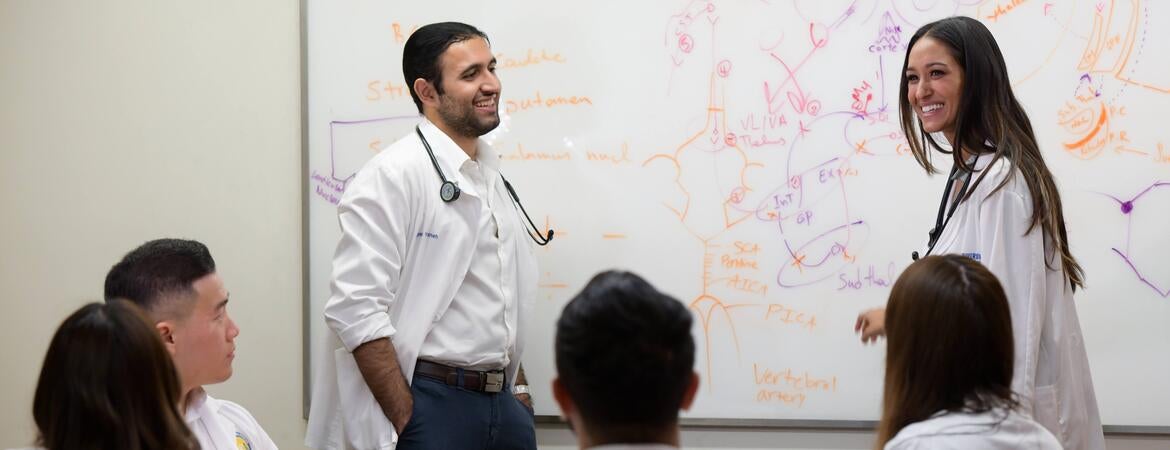
Every ACGME Residency/Fellowship Program at the SOM Accredited with Commendation
The annual review from the ACGME commended each SOM program for its close adherence to guidelines.
All eight residency and fellowship programs at the UCR School of Medicine that are accredited by the Accreditation Council for Graduate Medical Education (ACGME) have received continued accreditation with commendation.
The ACGME reviews graduate medical education programs annually in the U.S. to ensure that they adhere to all program requirements, a process that includes monitoring scholarly activities, faculty work, site affiliations, and feedback from residents and fellows. This year, the reviewers commended every UCR SOM program for their “demonstrated substantial compliance with the program requirements without any new citations.”
“I was mighty pleased,” said Rajesh "Robby" Gulati, MD, associate dean for Graduate Medical Education . “It means that we have the capability and the expertise to run excellent programs.”

Graduate Medical Education at the SOM operates three residency programs and six fellowships that are accredited by the ACGME: family medicine , internal medicine , and psychiatry (residency programs), and cardiovascular medicine , child and adolescent psychiatry , critical care medicine , gastroenterology , and interventional cardiology (fellowships). A ninth program, minimally invasive gynecologic surgery (MIGS) , is separately accredited by the American Association of Gynecologic Laparoscopists (AAGL).
Gulati oversees every program, remaining in close collaboration with each one. He credited the work of the GME program directors and coordinators, noting their success despite the additional challenges involved with the SOM’s programs spread out among community hospitals.
Gulati also noted the support of Deborah Deas, MD, MPH, the vice chancellor for health sciences and the Mark and Pam Rubin dean of the School of Medicine . “I think that it is very important, whether it's undergraduate medical education or graduate medical education, that you have a supportive leader at the top, and I have nothing but praise for Dean Deas," he said.
Priscilla L. Verales, psychiatry residency program coordinator , said that receiving accreditation with commendation recognized their hard work. “It is not a one-person recognition, it is a team recognition,” she said. “I want to give congratulations to everyone who has helped us in this process, because this is one of many that we expect to get.”
“This means that UCR School of Medicine's residency programs are standing out and providing exceptional training and education to our residents,” Verales added. “It demonstrates that we are well on our way to fulfilling our mission of bringing physicians to our community and training them to treat patients in our region.”
Related Articles
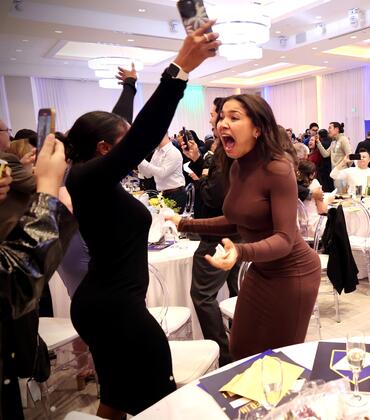
UCR SOM Celebrates Match Day 2024

Healthy Pregnancies for All

Setting Kids and Future Physicians Up for Success
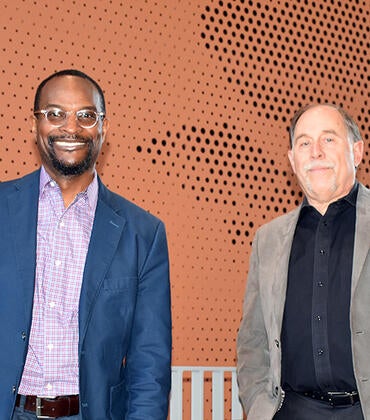
New Master of Public Health Program to Start in Fall 2024
Duke Schweitzer Fellows Address Health Disparities
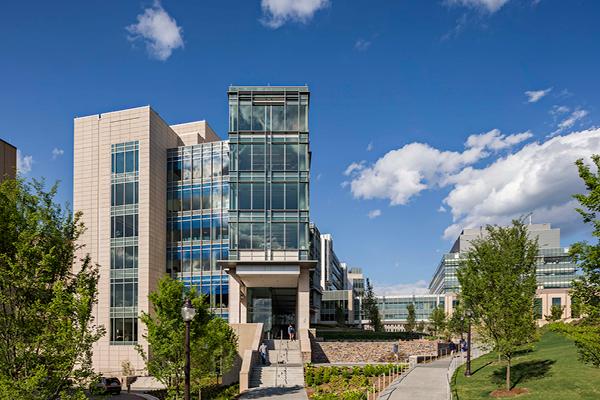
Four students at the Duke University School of Medicine have been named to the 2023-24 class of the North Carolina Albert Schweitzer Fellowship program and will spend the next year working on projects that address social factors that impact health and health care.
They are part of a class of 29 North Carolina graduate students representing medicine, dentistry, physical therapy, occupational therapy, public health, and law.
“Schweitzer Fellows are not given a project or told to address a specific health need,” said Barbara Heffner, executive director of the NC Albert Schweitzer Fellowship. “They follow their passion and the needs of the community to develop innovative approaches which fill gaps in our health care system.”
Schweitzer Fellows develop and implement service projects that address the root causes of health disparities in under-resourced communities, while also fulfilling their academic responsibilities.
The fellowships include an intensive leadership component, with fellows working closely with community and academic mentors during their fellowship year.
The Duke Schweitzer Fellows are:
Katherine Kutzer and Eden Singh
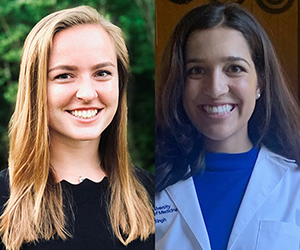
Academic Mentors : Thorsten Seyler, MD, PhD, associate professor of orthopaedic surgery and Dawn Coleman, MD, chief of vascular and endovascular surgery
Site Mentor : Mamata Yanamadala, MD, associate professor of medicine
Site : Perioperative Optimization of Senior Health (POSH) Clinic at the Durham VA Medical Center
Participate in POSH Pals to help older adults achieve health equity by providing them with the support needed for a successful recovery from elective surgery. Students will use telehealth to screen veterans, connect them to community resources, and provide medication and appointment reminders at discharge and follow-up.
Dana Rowe and Antoinette Charles
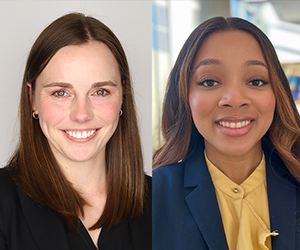
Academic Mentor : C. Rory Goodwin, MD, PhD, associate professor of neurosurgery and Melissa Erickson, MD, MBA, associate professor of orthopaedic surgery
Site Mentor : Katie Mackin
Site : Spine Tumor Patient Support Group
Lead a patient navigator program for those in the Duke Spine Division of the Department of Orthopaedic Surgery and Department of Neurosurgery. The program aims to improve care for spine surgery patients through personalized guidance from navigators, peer mentorship, and support groups.
The North Carolina Albert Schweitzer Fellowship is preparing the next generation of professionals who have a passion for community service and innovation in addressing health disparities. NCASF began in 1994 as a local chapter of the national nonprofit, the Albert Schweitzer Fellowship, and has trained more than 634 leaders in health care.
- See us on twitter
- See us on facebook
- See us on youtube
- See us on linkedin
SoM/GSE Fellowship Pilot Program Wraps up First Year
March 25, 2024.
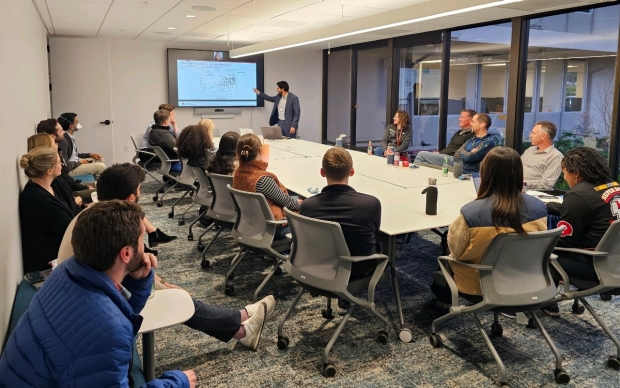
SoM/GSE Fellow Albaraa Basfar, PhD presents a WIP at Stanford SPIRE in early March. Photo by Ana Mezynski.
Every public-school teacher has passed a rigorous certification process. At Stanford Graduate School of Education (GSE), they take things one step further researching pedagogy to “achieve equitable, accessible and effective learning for all.” By comparison Surgery’s old educational mantra: “See one. Do one. Teach one.” seems woefully out-of-date.
“Much of the research in medical education lags behind that of the global education discipline as a whole,” said Dr. James Korndorffer, who serves as Vice Chair of Education in Stanford’s Department of Surgery. “The advances in medical education research from collaboration will benefit all disciplines involved, the learner and also through the learner, a lifetime of patients.”
Korndorffer decided to create a fellowship program linking Stanford’s School of Medicine (SoM) and GSE after enrolling in the Stanford Medicine Leadership Academy in 2018. Although the idea was put on hold due to the COVID19 pandemic, Korndorffer was able to secure funding with the assistance of the Dean of the Graduate School of Education, Daniel Schwatz PhD, the Senior Associate Dean for Medical Education, Neil Gesundheit MD MPH and the Associate Dean for Graduate Medical Education Laurence Katznelson, MD and enrolled the first two postdoctoral fellows in 2023.The program is currently wrapping up its first year.
The pilot program included two postdoctoral fellows:
• Zihan Zhou, PhD under the mentorship of Radiology’s Kawin Setsompop, PhD and Psychology/GSE’s Jason Yeatman, PhD and
• Albaraa Basfar, PhD under the mentorship of GSE’s Farzana Saleem, PhD and S-SPIRE’s Arden Morris, MD.
“ The fellowship's focus on applying research to real-world applications directly aligned with my passion for improving educational equity for underrepresented minorities (URiM),” said Basfar. “The program provided a unique opportunity to develop and implement relevant research that could have a tangible impact in the field of education.”
Morris said she felt similarly but from the opposite angle.
“I had been searching for a way to improve our pipeline/pathway program for STEM-interested teens from URiM backgrounds ( SMASH-Med ). I hoped this post-doc could take over the program and generate new knowledge in terms of measuring success in a pipeline program,” said Morris. “I also wanted to better connect with colleagues in GSE, and this was a nice opportunity to do that with Saleem, who studies aspects of resilience among racial/ethnic minoritized teens.”
So far, Basfar, Morris, and Saleem have completed analyses from a survey of medical students to understand the interplay of formal and informal mentorship, sense of belonging, and peer/social support among medical students across the US. Basfar is also working on a systematic review to assess cumulative evidence on how best to define and measure success of such pipeline or pathway programs.
“This is an important program because it allows students multidisciplinary exposure to both the GSE and the SoM,” said Farzana Saleem, PhD, an assistant professor at the GSE. “Students have access to faculty and support across the two schools and have the opportunity to consider how education and medicine intersect.”
Zhou will present "Development and validation of a rapid robust 3D-MRF with fast online recon suitable for large-scale neuroscientific and clinical applications" at the annual meeting for the International Society for Magnetic Resonance in Medicine in Singapore at the beginning of May and "A novel approach for quantitative T1 measurements: Validation in a longitudinal pediatric sample” at the Organization for Human Brain Mapping’s annual meeting in Seoul, Korea at the end of June.
“The fellowship has solidified my interest in developing and implementing research-based solutions to improve educational equity for underrepresented minorities,” said Basfar. “I've received invaluable training in grant writing and the intricacies of working in academia. This training will be instrumental in my job search.”
Related News
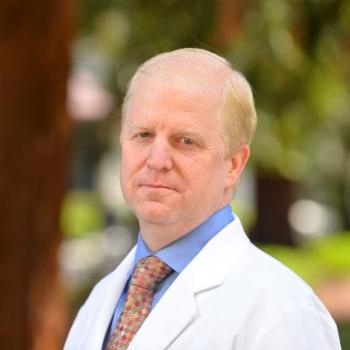
Dr. Korndorffer Nominated to AOA
Dr. Jim Korndorffer has been nominated by the University of South Florida (USF) Marsani College of Medicine Gamma Florida Chapter for Membership into the Alpha Omega Alpha (AOA) Honor Society in the Alumni category.

Media Contact
About Stanford Surgery
The Stanford University Department of Surgery is dedicated to inventing the future of surgical care through:
• pioneering cutting-edge research, • developing the next generation of leaders, and • healing through incomparable surgical skills and compassion.
To learn more, please visit surgery.stanford.edu
Dr. Daniel Ahn is the recipient of a 2024 Young Investigator Award from the American Transplant Conference (ATC) for this abstract entitled “Adult Liver Transplant Candidates with Non-Standardized MELD Score Exceptions Have Lower Risk of Waitlist Mortality Than Standard Candidates.”
According to the ATC website, “this award is designed to recognize a young investigator’s outstanding work and to help offset the expense to attend the congress.” Ahn received complimentary registration to ATC2024 which will take place June 1-5 in Philadelphia as well as a stipend for travel.
Ahn is a PGY2 in the General Surgery Residency Program at Stanford.

SoM/GSE Fellowship Pilot Program
Dr. Jim Korndorffer created a fellowship program linking Stanford's School of Medicine with its Graduate School of Education in an effort to improve medical education (and, by extension, patient care.) The fellows are currently wrapping up the first-year pilot.
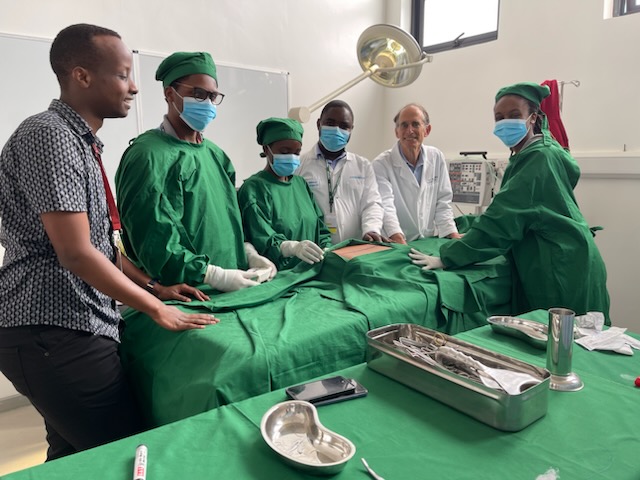
🌍 Spotlight: Martin Bronk
Dr. Martin Bronk recently visited UGHE in Rwanda for three weeks to teach senior medical students during their surgery clerkship.
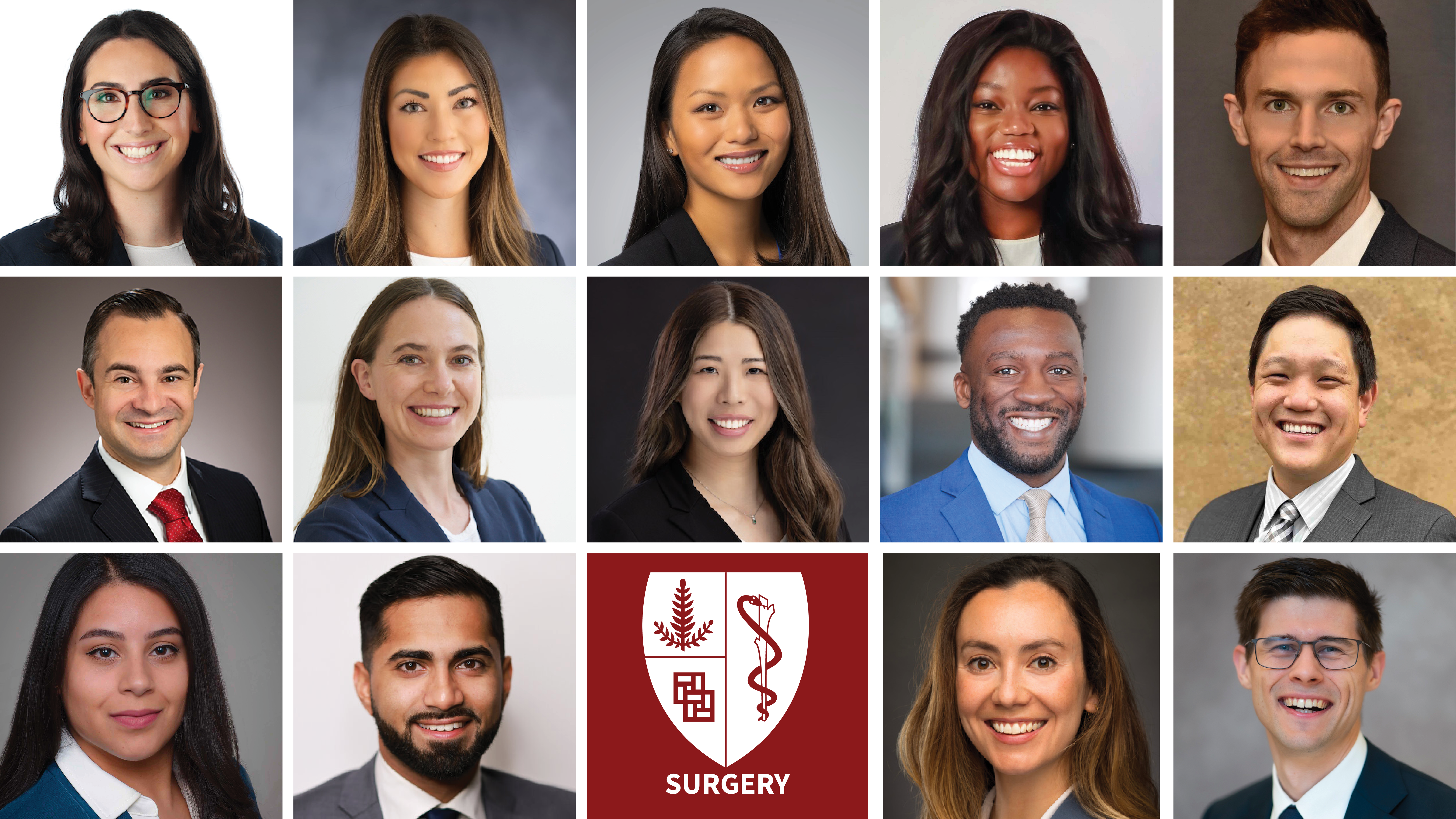
Match 2024 Results
The department welcomed its largest intern class ever with 14 new interns.
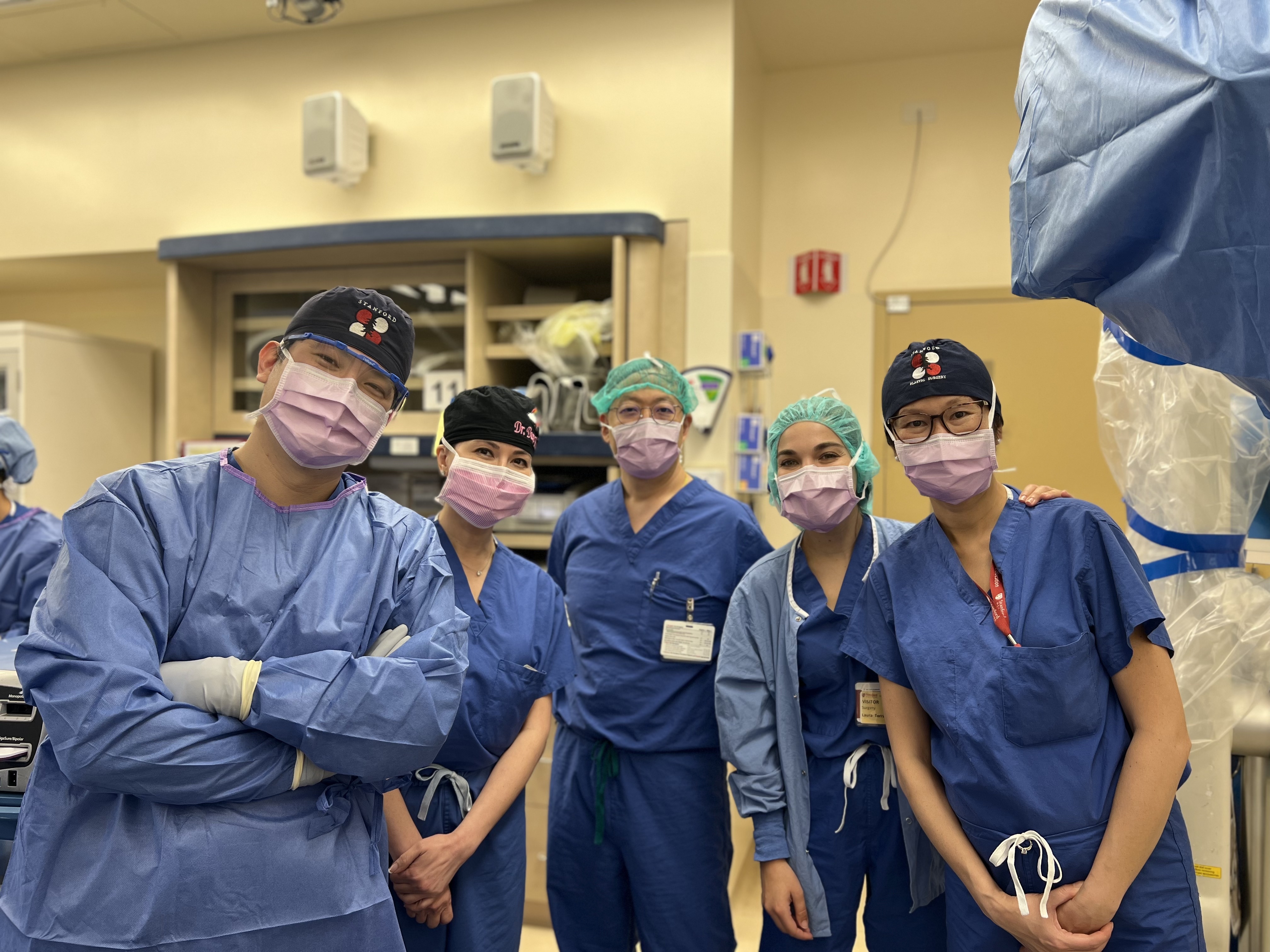
International Visiting Observer Program
Stanford Surgery’s International Visiting Observer Program is a unique opportunity for surgeons, surgical trainees, and surgical nurses to spend up to 30 days observing clinical practice side by side with surgical specialty teams that align with professional interests.

Carla Pugh appointed Joint Commission’s first presidential fellow
The Joint Commission, which accredits more than 22,000 health care organizations, awarded surgeon Carla Pugh the inaugural fellowship, during which she plans to develop a technology-driven process to support the organization’s work.
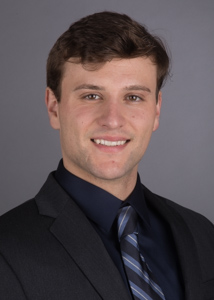
Exploring the Impact of Resident-led Safety Council on Patient Care
As a co-chair of the Resident Safety Council (RSC) alongside Pediatric Resident Dr. Katherine Xiong, Dr. Garrison Carlos had a vision to elevate safety standards and foster a culture of continuous improvement. Over the last two years, they spearheaded four distinct quality improvement initiatives.
Dr. Nguyen Selected to Serve as PSF Visiting Professor
Dr. Dung Nguyen has been invited to served as a Plastic Surgery Foundation(PSF) Visiting Professor for the 2024/25 academic year.
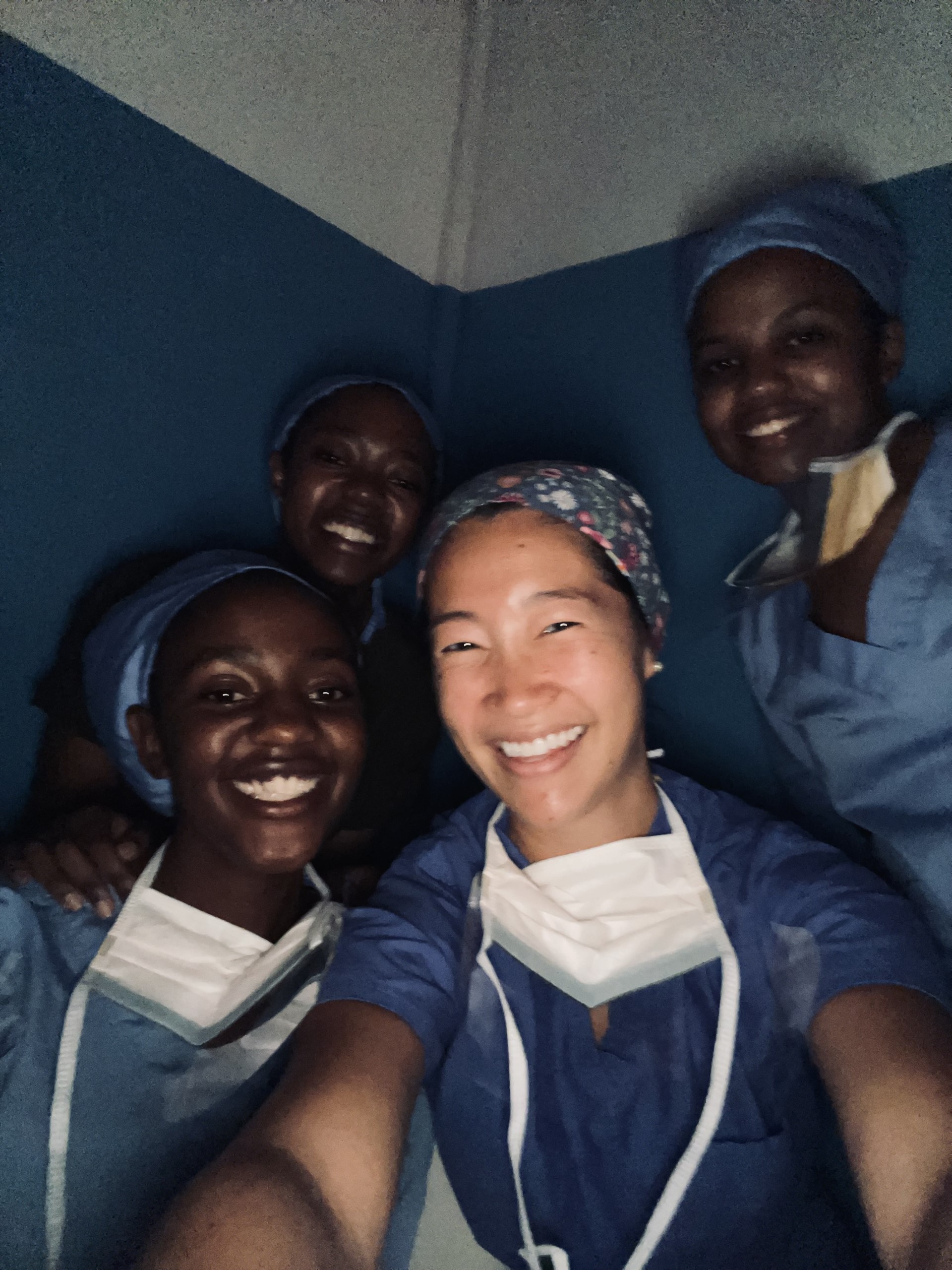
🌍 Spotlight: Lye-Yeng Wong
A Q&A with Dr. Rejoice Fari Ngongoni, a general surgery resident from Oregon Health Sciences University currently in her professional development years working in the Department of Cardiothoracic Surgery. She has been involved in prior global surgery activities and joined the ENTRUST team about 18 months ago under Drs. Cara Liebert and Dana Lin.
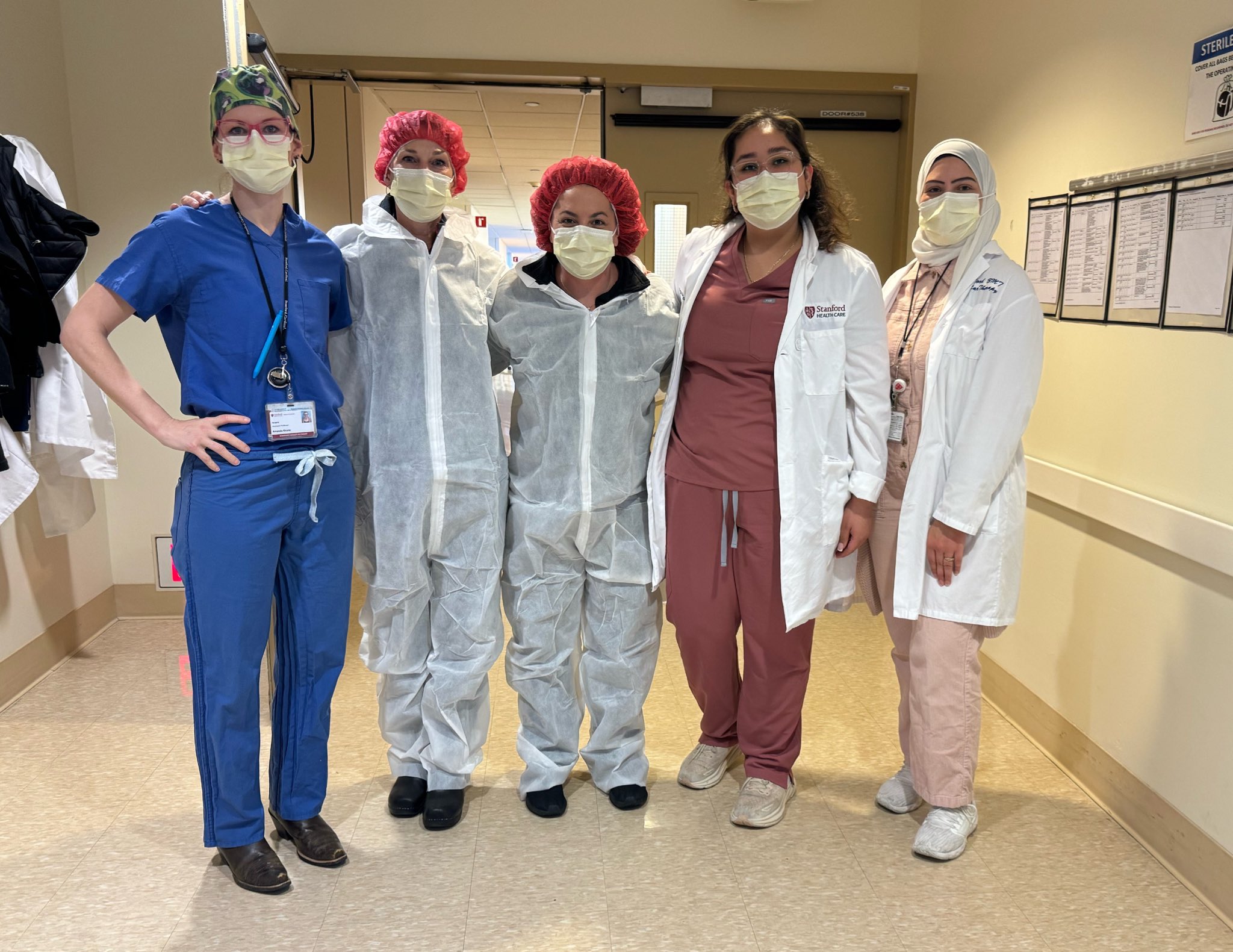
SHC Performs First FDA-Approved Cell Therapy for Melanoma
Stanford Health Care (SHC) performed the first FDA-approved cell therapy for solid tumor case in the country. AMTAGVI (lifileucel) was administered to a patient with metastatic melanoma on Tuesday, February 20, 2024.
Our websites may use cookies to personalize and enhance your experience. By continuing without changing your cookie settings, you agree to this collection. For more information, please see our University Websites Privacy Notice .
College of Engineering
Graduate Programs
$250 scholarship to graduate students who apply for external fellowship.
UConn and UConn Health Graduate Students:
Did you submit an application for a nationally-competitive external fellowship like the Fulbright or NSF-GRFP this academic year? If so, you may be eligible for an award of up to $250 through UConn’s National Fellowships Incentive Program (NFIP).
Under this program, full-time UConn graduate students in any degree-granting program who apply for prestigious external fellowships during the 2023-24 academic year (July 1, 2023 through June 10, 2024) are eligible for a $250 scholarship to recognize the work involved in developing proposals and submitting applications for such awards. A list of pre-approved fellowship programs is available here , but most fellowships of duration greater than or equal to 9 months and stipend greater than or equal to $20,000 are eligible. Additional details on the program and award eligibility, along with a link to the application, may be found at http://onsf.uconn.edu/nfip .
The current round of funding will support students who submitted (or will submit) applications for eligible fellowships between July 1, 2023 and June 10, 2024 . Students must complete and submit the NFIP application to receive this award. Applications are reviewed on a first-come, first-served basis. Funds are limited, and demand for the program has outstripped available funds several times in recent years, so apply soon.
Learn more at https://onsf.uconn.edu/nfip .

IMAGES
VIDEO
COMMENTS
A fellowship can help you pay for graduate or postgraduate education. Fellows are selected based on their potential to make a positive, long-lasting contribution to their academic discipline ...
A Guide to Research Fellowships. Obtaining a research fellowship is an excellent indication of your ability to thrive as future academic. Often confused with postdocs or research assistant roles, fellowships are competitive positions awarded to exceptional applicants to complete their own research project. This guide covers everything you'll ...
A doctoral program may weigh down your wallet, but most colleges and universities want to make the experience more affordable for you. Many institutions offer internal fellowships that give their own PhD students that chance to advance their research or dissertation work while contributing to scholarship at the university.
1. Graduate. Graduate fellowships offer money to help subsidize the cost of a graduate degree. Fellowships can come in the form of cost-of-living stipends, health insurance or to cover tuition. In some cases, a fellowship may also help to pay for the expenses tied to a graduate student's professional development (i.e.
Predoctoral fellowships are typically portable, meaning the recipient may choose the educational institution and graduate program for which the fellowship will be utilized. Predoctoral fellowships typically provide multiple years of funding at nationally competitive rates to fully support the educational and living expenses of recipients in the ...
The Google PhD Fellowship Program was created to recognize outstanding graduate students doing exceptional and innovative research in areas relevant to computer science and related fields. Fellowships support promising PhD candidates of all backgrounds who seek to influence the future of technology. Google's mission is to foster inclusive ...
There are two types of graduate fellowships that can be used to fund your tuition: internal and external. Internally, graduate schools sometimes offer "full funding" packages or full or partial merit-based fellowships to the applicants at acceptance. Internal funding and fellowships are sponsored by the school or department.
The Microsoft Research PhD Fellowship is a global program that identifies and empowers the next generation of exceptional computing research talent. Microsoft recognizes the value of diversity in computing and aims to increase the pipeline of talent receiving advanced degrees in computing-related fields to build a stronger and inclusive ...
A fellowship provides monetary support for various types of academic endeavors, including study, research, and professional-development, and can range in length from a month to multiple years. Winning a fellowship is an acknowledgement of your potential as an emerging scholar. There are fellowships for scholars at the undergraduate, graduate ...
The Graduate Research Fellowship Program History. The National Science Foundation (NSF) Graduate Research Fellowship Program (GRFP) is the country's oldest fellowship program that directly supports graduate students in various STEM (Science, Technology, Engineering and Mathematics) fields.
PhD Science Fellowship Program: The goal of this program is to increase the number of minority students who pursue doctoral degrees in the natural science disciplines— chemistry, physics, earth sciences, mathematics, biological sciences and computer science.
Every fellowship has specific criteria and application instructions, but as a general rule, most competitions ask for: A fellowship proposal, explaining your research topic and what you plan to do if you are granted the fellowship ; Recommendation letters ; A budget of expenses you expect to incur, especially for fellowships requiring travel
In 2009, Google created the PhD Fellowship Program to recognize and support graduate students who are doing exceptional research in Computer Science and related fields, and who are poised to shape the future of technology. Since our first awardee cohort 13 years ago, these PhD Fellowships have helped support 654 graduate students from around the world across Africa, Australia & New Zealand ...
Google PhD Fellowships directly support graduate students as they pursue their PhD, as well as connect them to a Google Research Mentor.. Nurturing and maintaining strong relations with the academic community is a top priority at Google. The Google PhD Fellowship Program was created to recognize outstanding graduate students doing exceptional and innovative research in areas relevant to ...
Fellowships. The USC Graduate School funds thousands of domestic and international students annually. PhD students at USC are supported by fellowships, teaching assistantships, research assistantships, or a combination of these funding sources. The recipients of Graduate School fellowships are selected from an application pool containing some ...
Princeton's Graduate School has launched a new pre-doctoral fellowship, which will fund students to study at Princeton for a year before they enroll as first-year Ph.D. students. Students from groups historically underrepresented in higher education are especially encouraged to apply for the new fellowship, which is among University efforts to increase diversity on campus and within academia.
The purpose of the NSF Graduate Research Fellowship Program (GRFP) is to help ensure the quality, vitality, and diversity of the scientific and engineering workforce of the United States. A goal of the program is to broaden participation of the full spectrum of diverse talents in STEM. The five-year fellowship provides three years of financial ...
Many fellowships (like Google's Public Policy Fellowship) now invite both senior undergraduate and graduate students to apply to their programs. In fact, some fellowships specifically require the applicant to be an undergraduate student, such as the James C. Gaither Junior Fellows program .
PhD studentships and doctoral fellowships A PhD is a postgraduate research degree, usually lasting three or four years, if undertaken full time. It involves independently conducting original and significant research in a specific field and is normally assessed by a written thesis and oral examination.
The Graduate School of Arts & Sciences has established a fellowship program, the Graduate Research in the United States. Fellowship (GRUF), to support research by GRS PhD and MFA students whose field-based or archival research requires travel to and a period of residence in another city/state within the United States. This fellowship is open to ...
There are a vast number of Fellowships, and programs vary widely. They can be designed to support a range of activities including graduate study in a specific field, research to advance work on a particular issue, developing a new community-based organization or initiative, training and reflection to support the fellow's growth, and ...
GEM Fellowship. GEM's principal activity is the provision of graduate fellowships at the MS and PhD levels coupled with paid summer internships . GEM also offers fellowships without paid summer internships through our GEM University and Associate Fellowship programs. M, D -- STEM. September/October.
Epidemiology Elective Program is open now through 4/1/2024. Epidemic Intelligence Service is open now through 6/5/2024. Whether you are on a career track or deciding on which career you would like to pursue, CDC has many diverse fellowship, internship, training, and volunteer opportunities for students and professionals.
Masters Program PhD Program Certificates Courses Admission Select to ... You're eligible for a $34,000/year Fellowship. Learn more... Self Graduate Fellowship Snow Hall, Room 415 1460 Jayhawk Blvd. Lawrence, KS 66045 [email protected] 785-864-3501. twitter youtube. Visit KU;
Students holding one of the GC's multi-year fellowships and tuition fellowships are also welcome to apply. Effective with the Fall 2023 semester, this OIRE graduate fellowship requires fellows to work a total of 450 non-teaching hours during the academic year (15 hours/week).
The University of Tennessee, Graduate School of Medicine is located in Knoxville at the University of Tennessee Medical Center. The Graduate School of Medicine is part of the University of Tennessee Health Science Center and offers residency programs, fellowships, and opportunities for medical students.
All eight residency and fellowship programs at the UCR School of Medicine that are accredited by the Accreditation Council for Graduate Medical Education (ACGME) have received continued accreditation with commendation.. The ACGME reviews graduate medical education programs annually in the U.S. to ensure that they adhere to all program requirements, a process that includes monitoring scholarly ...
Four students at the Duke University School of Medicine have been named to the 2023-24 class of the North Carolina Albert Schweitzer Fellowship program and will spend the next year working on projects that address social factors that impact health and health care. They are part of a class of 29 North Carolina graduate students representing medicine, dentistry, physical therapy, occupational ...
Dr. Jim Korndorffer created a fellowship program linking Stanford's School of Medicine with its Graduate School of Education in an effort to improve medical education (and, by extension, patient care.) The fellows are currently wrapping up the first-year pilot.
Under this program, full-time UConn graduate students in any degree-granting program who apply for prestigious external fellowships during the 2023-24 academic year (July 1, 2023 through June 10, 2024) are eligible for a $250 scholarship to recognize the work involved in developing proposals and submitting applications for such awards.